|
|
All Countries Ships in World War I and II
|
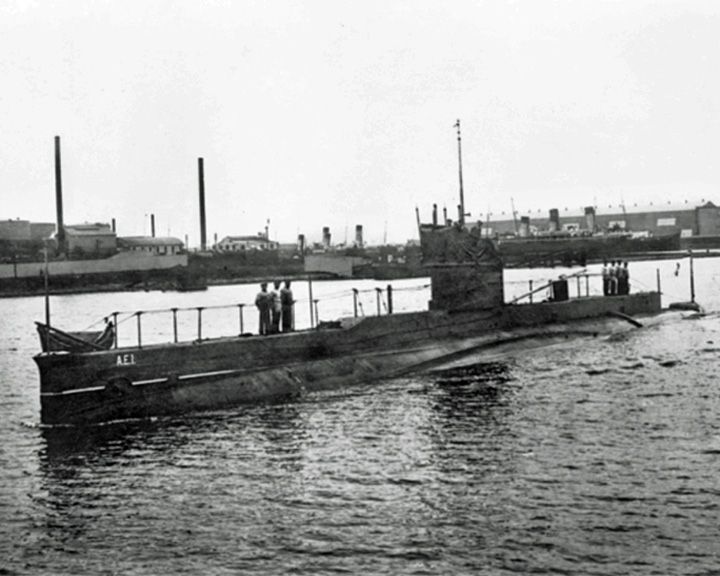 AE1, HMAS — Australia E-class submarine, British built The first Royal Australian Navy submarine and the first allied vessel lost in World War I with a crew of 35. She was assigned to the capture of the German Pacific colony of New Guinea at the outbreak of the World War I. LAUNCHED: 1913, May 18 → FATE: Lost at sea September 14, 1914; her wreckage located at a depth of 300 meters off the Duke of York Islands. |
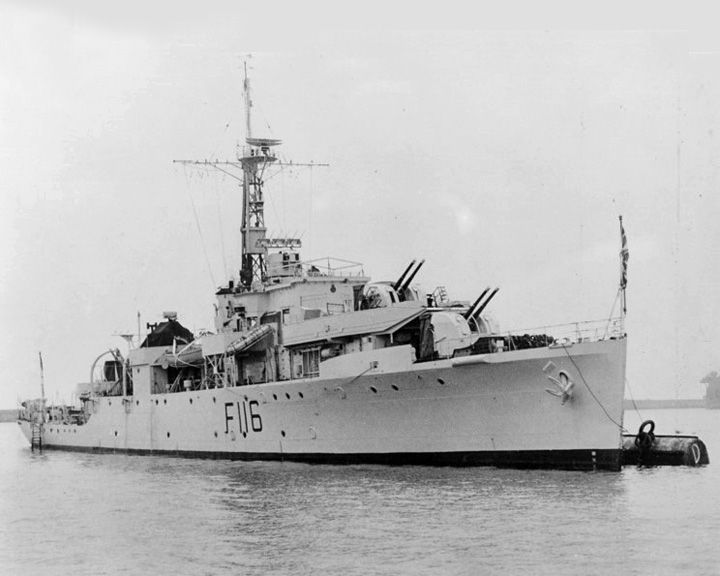 Amethyst, HMS — British modified Black Swan class sloop Subject of the 1957 movie Yangtse Incident, an actual event in April of 1949 during the Chinese Civil War. In the movie, she played herself. During World War II, she was deployed mostly on anti-submarine patrols and escort duties. LAUNCHED: 1943, May 18 → FATE: Scrapped January 19, 1957. |
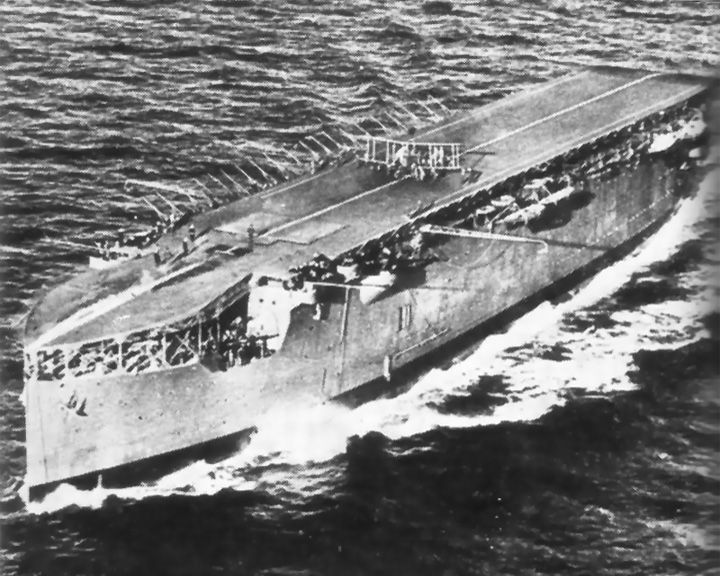 Argus, HMS — British aircraft carrier First Aircraft carrier to have a full flight deck and a lift. She was built from the incomplete Italian ocean liner Conte Rosso and served extensively in both world wars. LAUNCHED: 1917, December 18 → FATE: Scrapped December 1946. |
 (Another (Another Arizona, USS — American battleship The sunken ship lies in Pearl Harbor with a memorial above it honoring the lost of 1177 crew. The sunken ship continues to leak about a quart of oil per day into the harbor. LAUNCHED: 1915, June 18 → FATE: Sunk during the December 7, 1941 Pearl Harbor attack. |
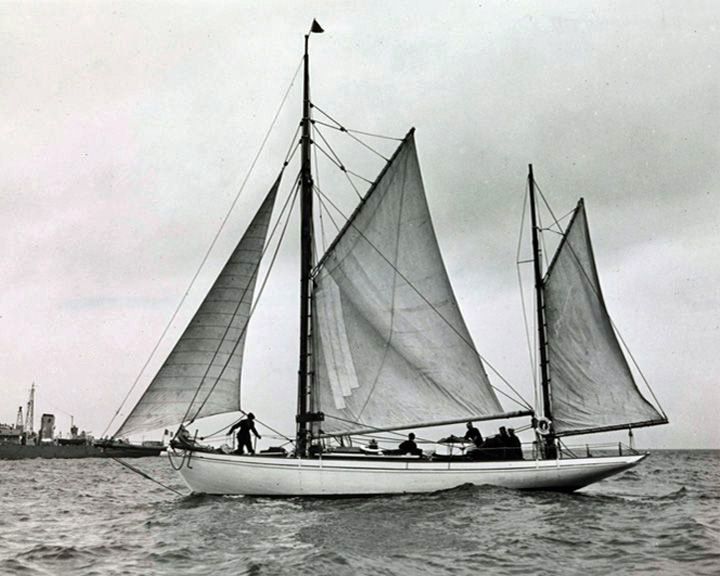 (Another (Another Asgard — British yacht She is most noted for her use in the Howth gun-running of 1914. She was used for sail training by the Irish Navy in the 1960s and as the national sail training vessel from 1969 to 1974. LAUNCHED: 1905 → FATE: The restored Asgard is on permanent display in Collins Barracks, Dublin. |
 Atlantis — German auxillary cruiser or commerce raider She had the longest raiding career of any German commerce raider in either world war and was second only to Pinguin in tonnage destroyed. She began her career as the cargo ship Goldenfels. In late 1939 she was requisitioned by the Kriegsmarine and converted into a warship. LAUNCHED: 1937, Converted in 1939 → FATE: Sunk by a British ship November 22, 1941. |
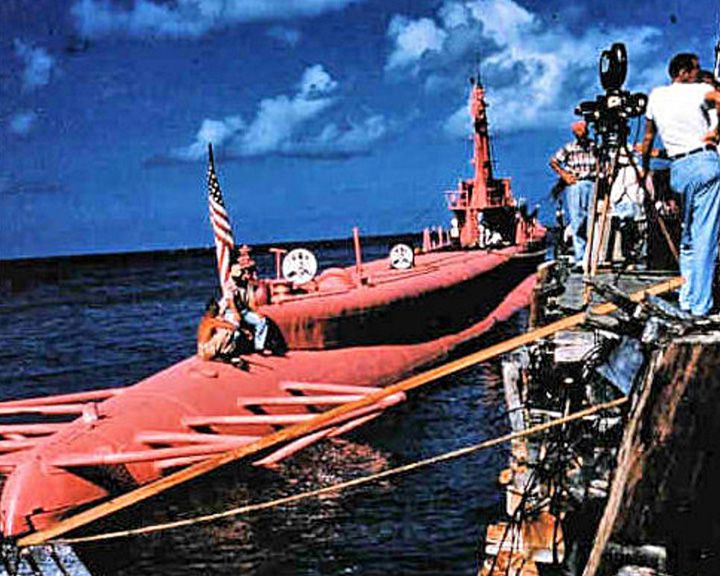 Balao, USS — American submarine Featured as the "pink submarine" in the 1959 movie Operation Petticoat, co-starring with Cary Grant and Tony Curtis. She served ten patrols in World War II, then in training exercises afterwards. Her conning tower and periscope are on display at the U.S.Navy Museum in Washington, D.C. LAUNCHED: 1942, October 18 → FATE: Sunk as a target off Florida on September 6, 1963. |


|
Page 2
|
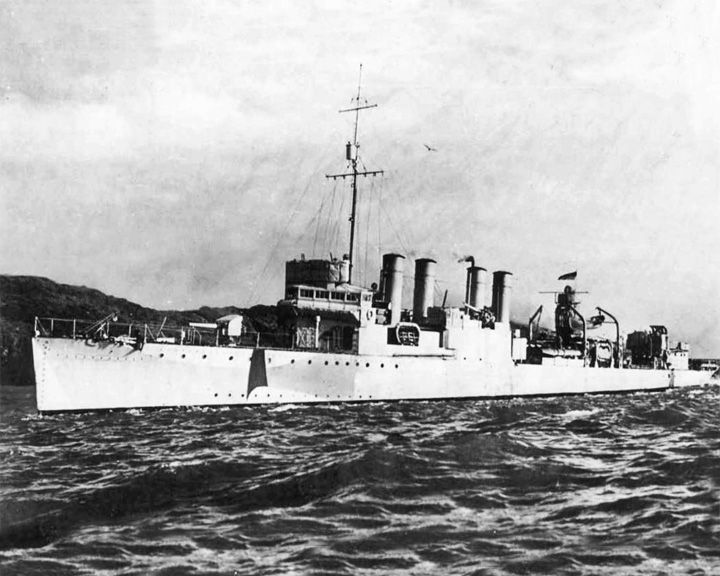 Ballantrae, USS — American Town-class destroyer A fictional ship in the movie Gift Horse on a one-way mission in World War II to destroy a German-held dry dock in France; based on HMS Campbeltown and the St Nazaire Raid. The USS Twiggs was turned over to the Royal Navy in 1940 to become HMS Leamington. From 1944-1949, she served under the Russian flag, then was returned to Great Britain in 1950 where she appeared in the movie. LAUNCHED: 1951, movie release; USS Twiggs launched September 1918 → FATE: After appearing in the movie, she was scrapped at Newport, Wales in 1951. |
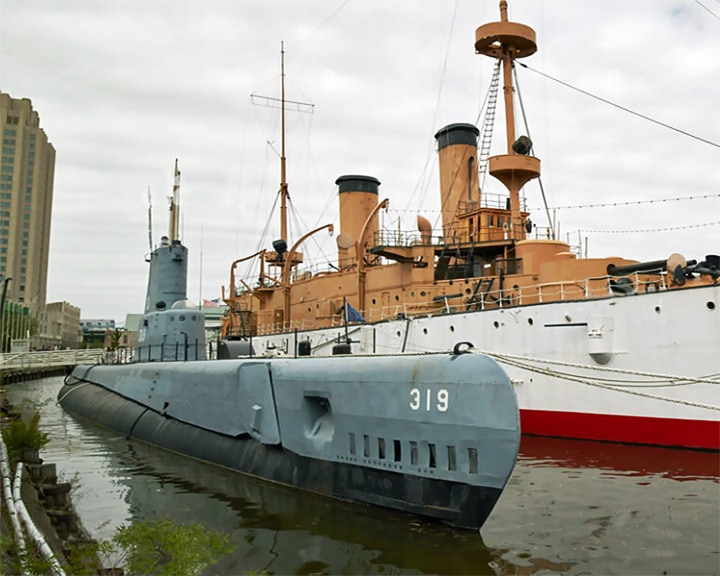 Becuna, USS — American submarine Designated a National Historic Landmark for her service in World War II, for which she earned four battle stars. She is credited with having sunk two Japanese tankers totaling 3,888 tons. LAUNCHED: 1944, January 30 → FATE: She serves as a museum ship at the Independence Seaport Museum in Philadelphia, Pennsylvania |
 Belfast, HMS — British town-class cruiser One of only three surviving bombardment ships which supported the D-Day Normandy Landings in 1944 of World War II, firing probably the first or second salvo. She spent 33 days in support of the D-Day landings and fired over 4,000 6-inch and 1,000 4-inch shells. LAUNCHED: 1938, March 18 → FATE: After much preservation work, she is on exhibit, located on the River Thames next to Tower Bridge at the Port of London. |
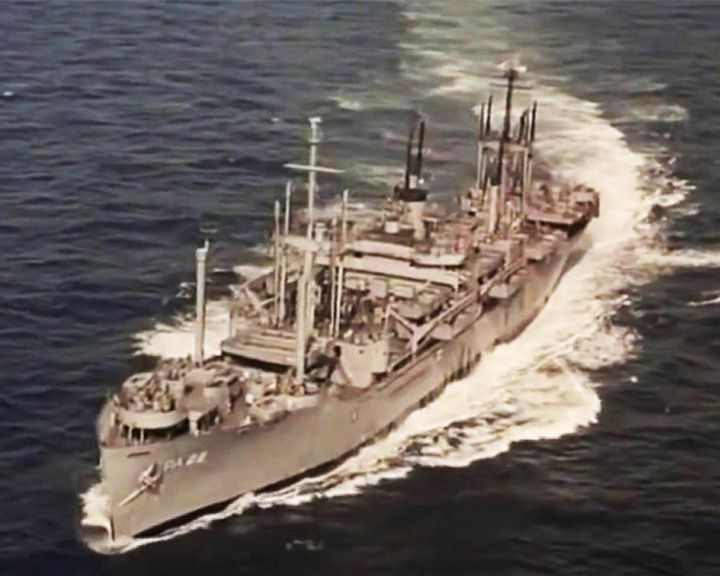 Belinda, USS — American attack transport The World War II ship in the 1956 movie Away All Boats.. She was portrayed by the USS Randall, an attack transport in service with the United States Navy from 1944 to 1956. LAUNCHED: 1956 → FATE: The actual ship, Randall, was scrapped in 1972. |
 Birmingham, USS — American scout cruiser, Chester-class The first airplane takeoff from a ship in history in 1910. During World War I, she patrolled along the northeast U.S. coast until 14 June 1917 when she sailed from New York as part of the escort for the first US troop convoy to France. LAUNCHED: 1907, May 29 → FATE: Sold for scrap, 13 May 1930. |
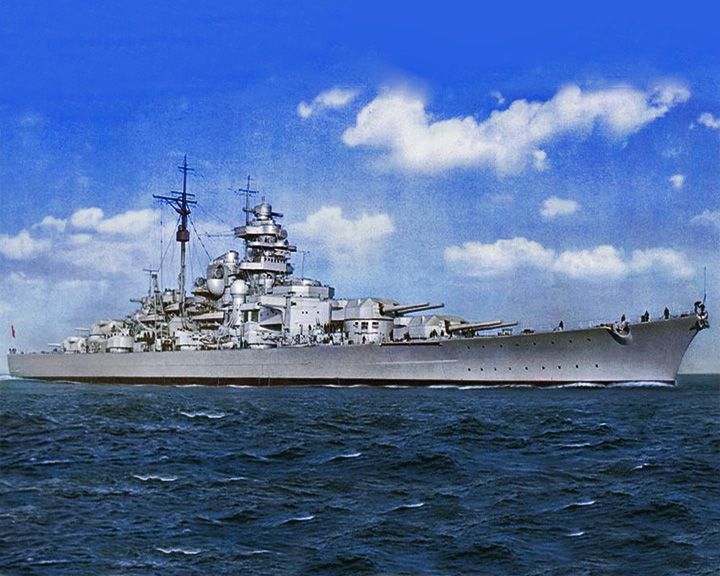 (Another (Another Bismarck — German battleship At the Battle of Denmark Straits, May, 1941, she sunk the British battlecruiser HMS Hood. Relentlessly pursued and sunk by the Royal Navy following Winston Churchill's order "Sink the Bismarck". She and her sister ship Tirpitz were the largest battleships ever built by any European country. LAUNCHED: 1939, February 18 → FATE: Sunk by British forces on May 27, 1941 in the North Atlantic. |
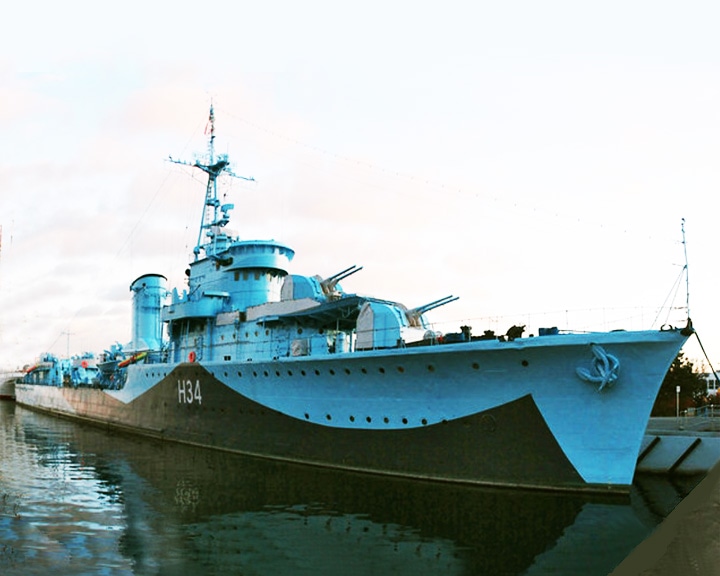 Blyshawica, ORP — Polish destroyer, Grom-class She is the only Polish Navy ship to have been decorated with the Virtuti Militari, Poland's highest military order for gallantry. She is the oldest preserved destroyer in the world. LAUNCHED: 1937, November 25 → FATE: On display as a museum ship in Gdynia, Poland. |
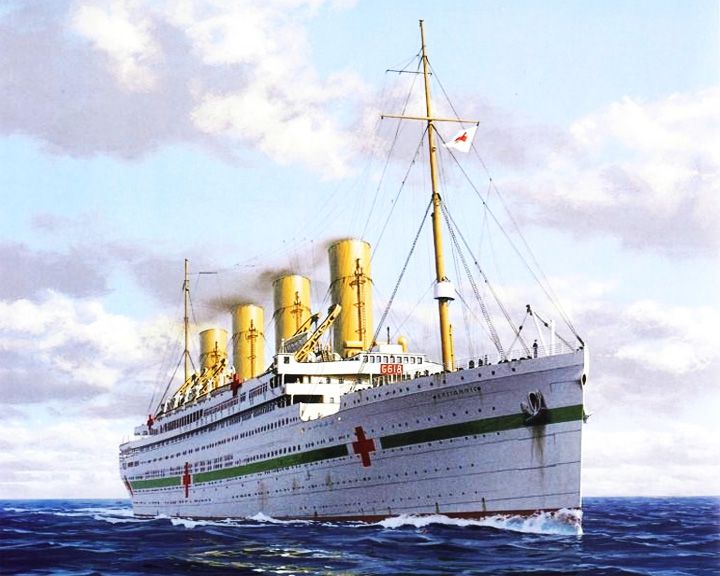 (Another (Another Britannic, HMHS — British ocean liner Largest ship lost during the World War I with the loss of 30 lives. Launched just before the start of the World War I, she was put to use as a hospital ship in 1915. With her loss, SS Bismarck was given to the White Star Line as part of post-war reparations. LAUNCHED: 1914, February 18 → FATE: Struck a mine and sank off the Greek island of Kea November 21, 1916. |
|
Page 3
|
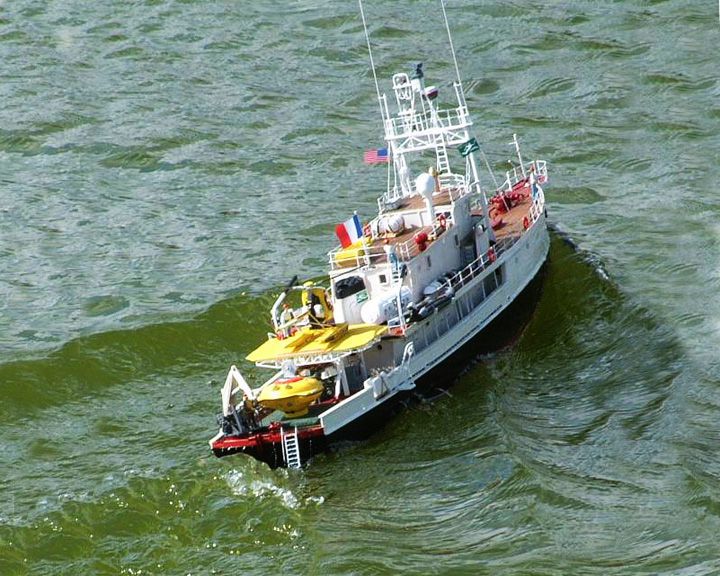 (Another (Another Calypso, RV — American minesweeper built for the British; refitted for research Oceanographer Jacques-Yves Cousteau sailed her as a mobile laboratory for field research. During World War II she served as a minesweeper and carried advanced equipment, including mini submarines. LAUNCHED: 1941, March 21, converted in 1950 → FATE: Sank in 1996, raised, neglected, and now being restored in Brittany. |
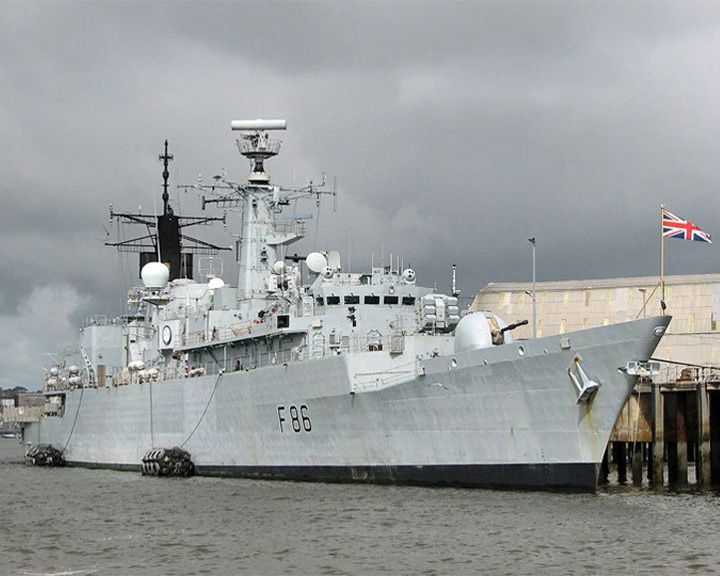 Campbeltown, HMS — American Wickes-class destroyer A most famous ship in the St. Nazaire Raid in 1942 when, packed with explosives, she was rammed into a German port and detonated. The ship and the raid were depicted in the movie Gift Horse. (See Ballantrae, HMS) LAUNCHED: 1919, January 2 as USS Buchanan; given to Britain and renamed in 1940 → FATE: Destroyed March 28, 1942 in the Saint Nazaire Raid, World War II. |
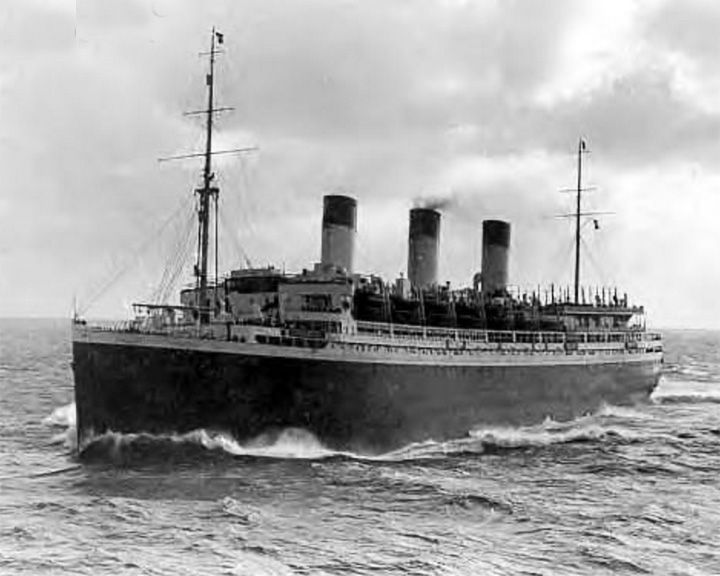 (Another (Another Cap Arcona, SS — German ocean liner Her sinking was one of the biggest maritime losses of life during World War II. Only 350 of the 4,500 former concentration camp inmates aboard the ship survived. LAUNCHED: 1927, May 18 → FATE: Sank on May 3, 1945 after being attacked by an RAF squadron. |
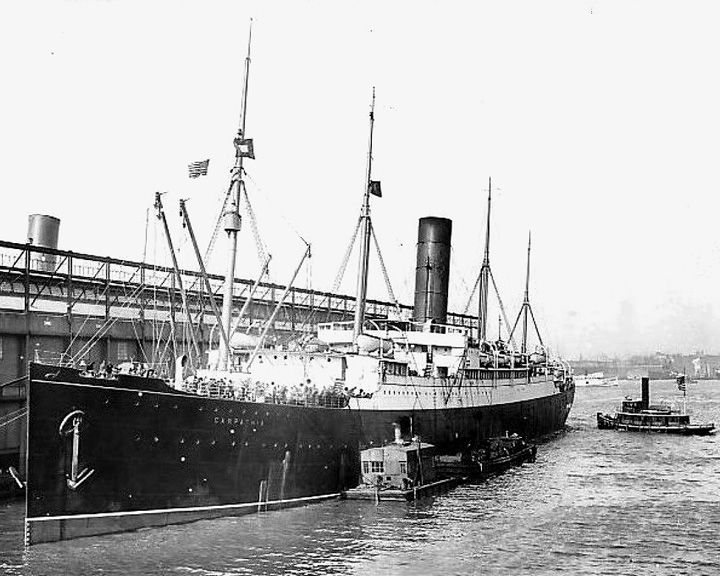 Carpathia — British ocean liner; (Cunard Line passenger steamship) Became famous for rescuing survivors of RMS Titanic on April 15, 1912. After sailing through dangerous ice fields, she arrived at the sinking Titanic at 4:00 am and took on 705 survivors from lifeboats. LAUNCHED: 1902, August 18 → FATE: Sunk in the Atlantic on July 17, 1918 during World War I by a German submarine, the fifth Cunard ship sunk in as many weeks. |
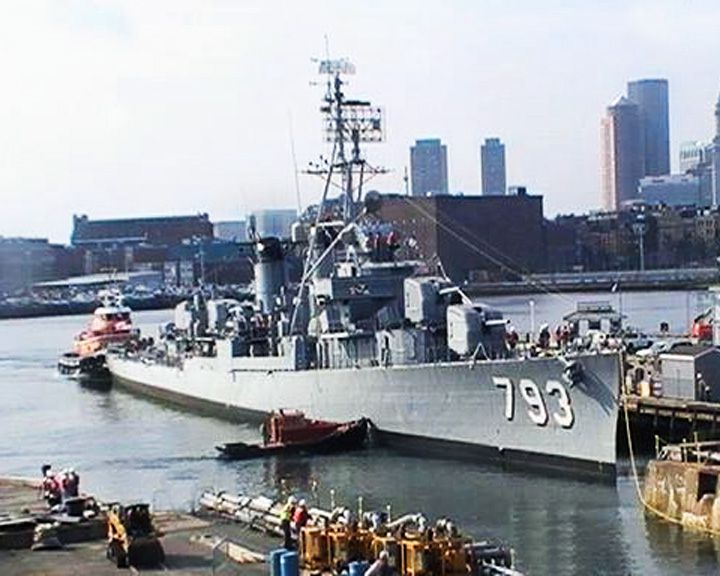 Cassin Young, USS — American destroyer in World War II One of only four surviving Fletcher-class destroyers still afloat. Named for Captain Cassin Young (1894-1942), who was killed in the Naval Battle of Guadalcanal. LAUNCHED: 1943, September 18 → FATE: Docked at the Boston Navy Yard as a museum ship as a museum ship. |
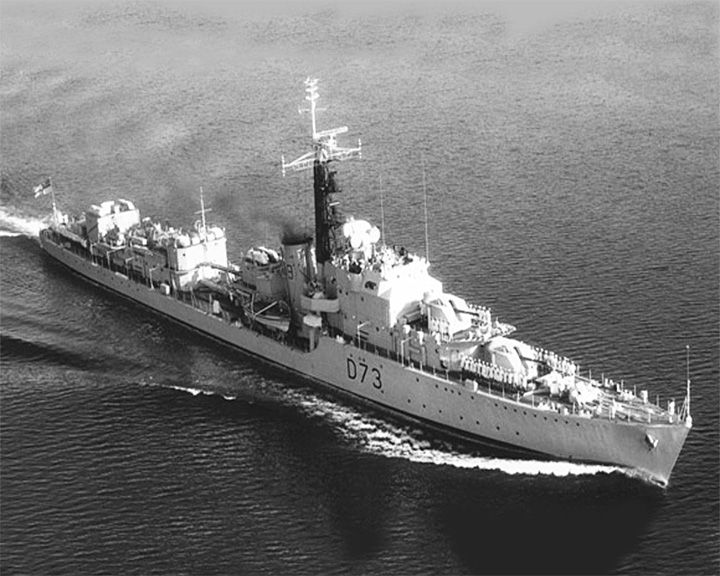 Cavalier, HMS — British C-class Destroyer Because of her high speed, she escorted the RMS Queen Mary and RMS Queen Elizabeth carrying troops across the Atlantic Ocean. In the summer of 2009 the Chatham Historic Dockyard Trust made available accommodation on board the ship for youth groups who wish to stay on board and experience life on board a Royal Naval Destroyer. LAUNCHED: 1944, April 18 → FATE: Preserved as a museum ship since 1998, now at the Chatham Historic Dockyard |
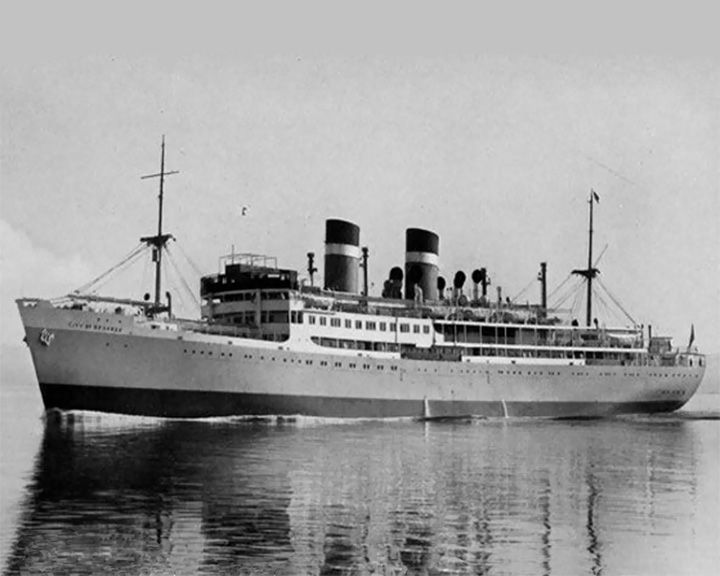 City of Benares, SS — British steam passenger ship The ship taking English evacuated children to Canada torpedoed during World War II by a German submarine. 260 of the 407 people on board were lost including 77 children. The sinking reportedly inspired actress and inventor Hedy Lamarr to develop and patent a system of spread spectrum radio as a means to guide anti-ship torpedoes. LAUNCHED: 1935, August 5 → FATE: Sunk September 18, 1940. |
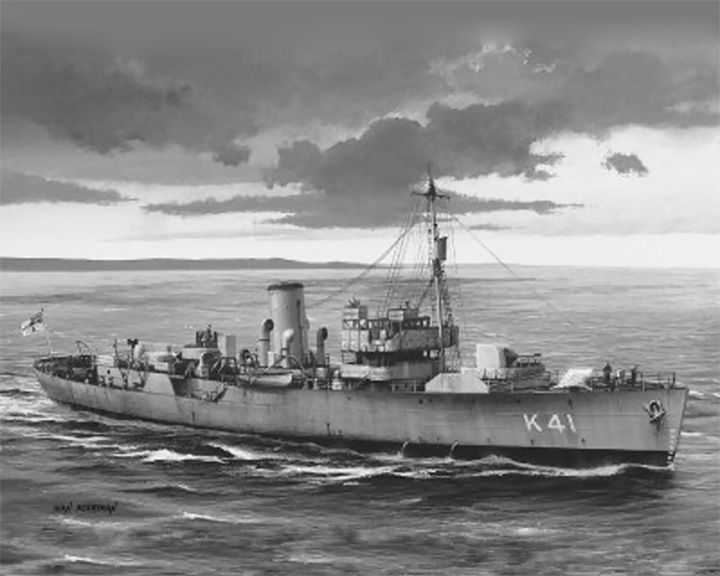 Compass Rose — British Flower-class corvette The ship portrayed in the movie The Cruel Sea, about the conditions in which the Battle of the Atlantic was fought between the Royal Navy and Germany's U-boats. The movie ship was portrayed by the Flower-class corvette HMS Coreopsis. LAUNCHED: 1953 → FATE: Inconclusive. |
|
Page 4
|
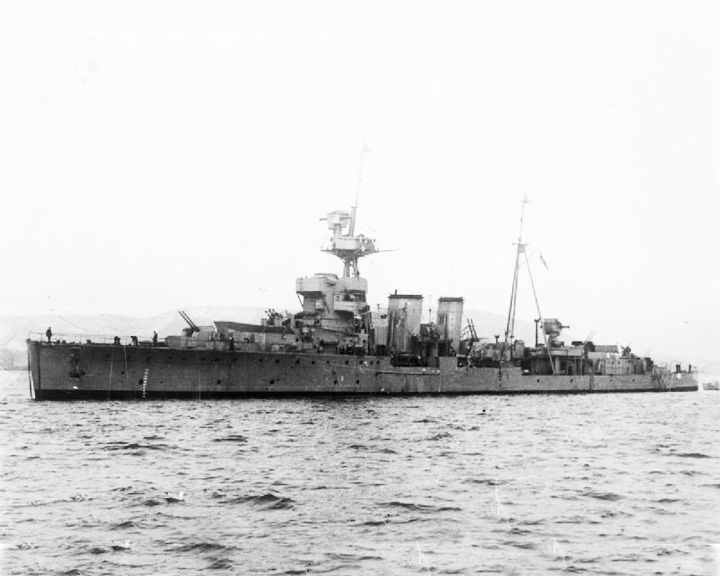 Curacoa, HMS — British light-cruiser Accidentally sliced in half and sunk by the ocean liner RMS Queen Mary, with the loss of 337 men. Her demise came while escorting convoy ships during World War II. Those who witnessed the collision were sworn to secrecy due to national security concerns. LAUNCHED: 1917, May 5 → FATE: Sunk in collision with HMS Queen Mary, 1942, October 2. |
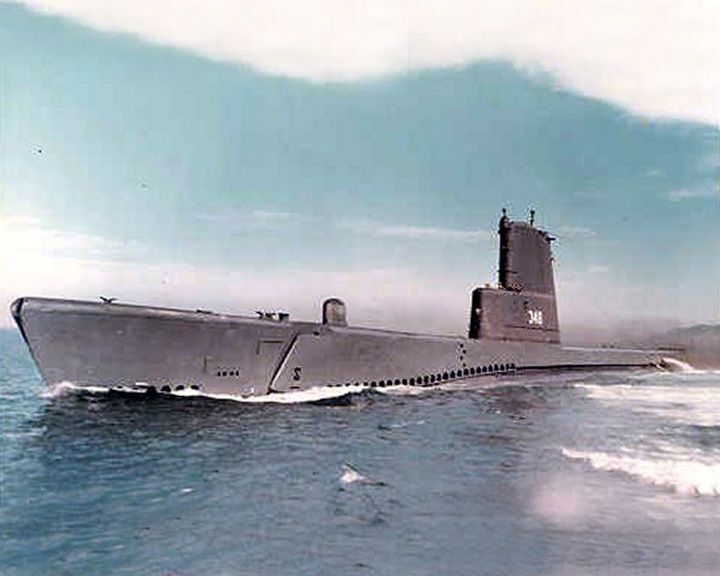 Cusk, USS — American submarine The first submarine to launch a guided missile from her deck. She appeared in the 1950 movie The Flying Missile as the USS Bluefin. LAUNCHED: 1945, July 18 → FATE: Sold for scrap June 26, 1972. |
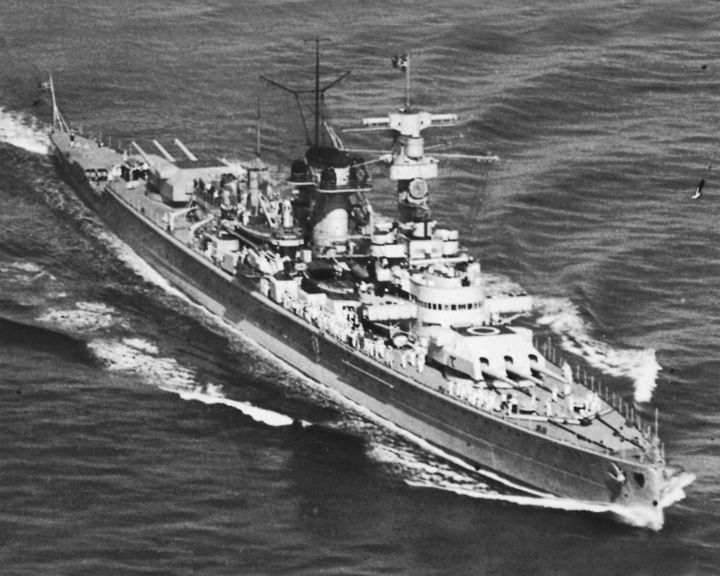 Deutschland — German pocket battleship Lead ship of her class serving in the German Kriegsmarine before and during World War II. Renamed Lützow in November of 1939, because Adolf Hitler feared loss of a ship named Deutschland would make for bad propaganda. LAUNCHED: 1931, May 18 → FATE: Sunk in the Baltic sea July 20, 1947. |
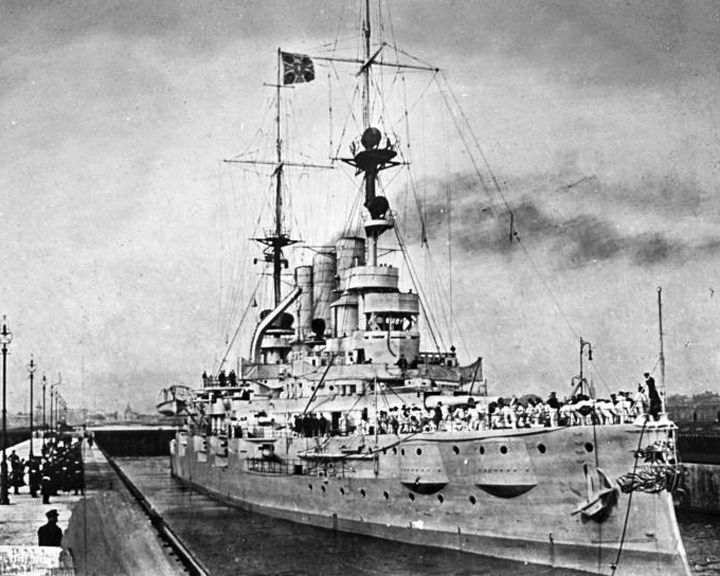 Deutschland, SMS — German battleship First of five Deutschland class pre-dreadnought battleships built for the Kaiserliche Marine between 1903 and 1906. With the launching of the big-gun English HMS Dreadnought battleship, the SMS Deutschland became obsolete. LAUNCHED: 1904, November 18 → FATE: Scrapped in 1920. |
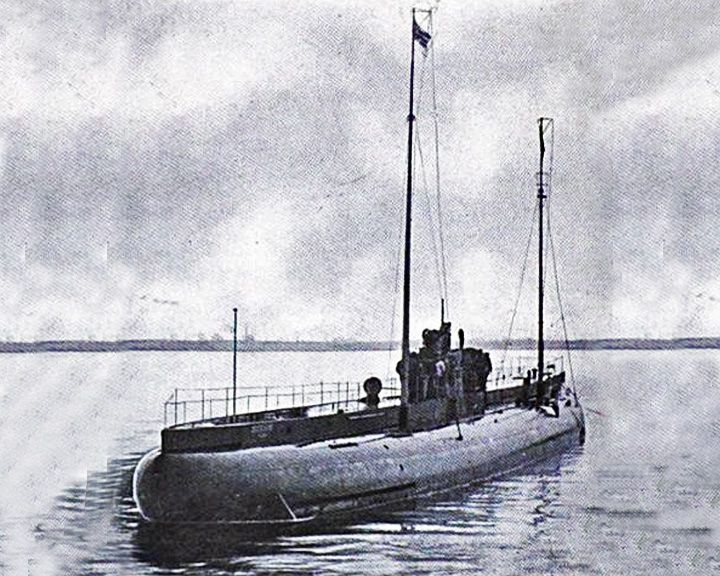 Deutschland, submarine — German submarine First submarine to cross the Atlantic Ocean. She was a blockade-breaking German merchant submarine used during World War I. LAUNCHED: 1916, March 28; converted 1917 June → FATE: Broken up at Morecambe, England in 1922. |
 Dolpin, USS — American V-class submarine The penultimate design in the V-boat series and star in the movie Submarine D-1. The movie hi-lights the use of the Momsen lung for emergency submarine rescues as well as the training tank structures of New London, Connecticut submarine base. LAUNCHED: 1931, March 18 → FATE: Broken up in August 1946. |
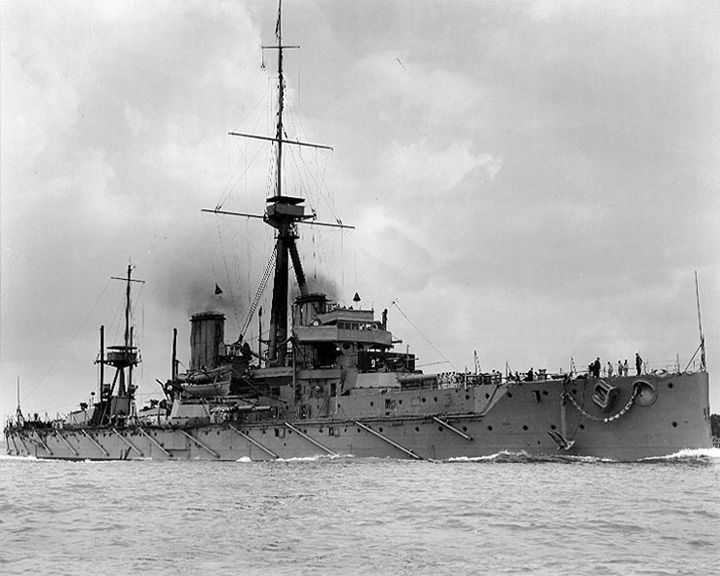 Dreadnought, HMS — British dreadnought battleship First "all-big-gun" armament and steam turbine propulsion. She revolutionized naval power and started a naval arms race. LAUNCHED: 1906, February 18 → FATE: Sold for scrap in 1923. |
 Drum, USS — American Gato-class submarine She is the oldest of Gato-class submarine still in existence, having received a total of 12 battle stars for her World War II service. She sank 15 ships for a total of 80,580 tons of Japanese shipping, eighth highest of all US submarines. LAUNCHED: 1941, May 18 → FATE: Currently a museum ship in Mobile, Alabama, at Battleship Memorial Park. |
|
Page 5
|
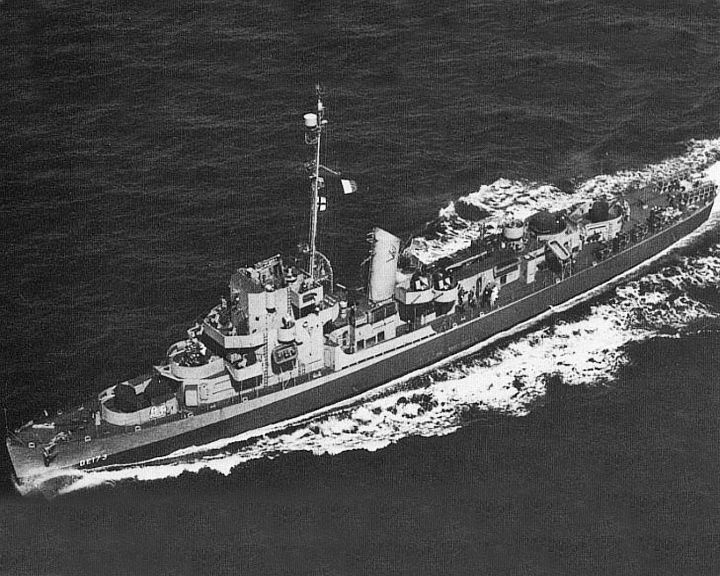 Eldridge, USS — American destroyer escort Famed as part of an alleged military experiment of cloaking ships invisible and carried out by the U.S. Navy at the Philadelphia Naval Shipyard.. A 1984 movie of the incident, The Philadelphia Experiment, presented a fictionalized version of the incident. LAUNCHED: 1943, July 25 → FATE: Decommisioned and scrapped November 11, 1999. |
 Empire Windrush, MV — German cruise ship captured by England in May of 1945 Carried 493 West Indian immigrants from Jamaica wishing to start a new life in the England on June 22, 1948. Before World War II, she was used for cruises by the Nazi Party to reward party members for services to the Party. Image shown is of sister-ship Empire Doon. LAUNCHED: 1930, December 18 → FATE: Sank in the Mediterranean Sea in March 30, 1954. |
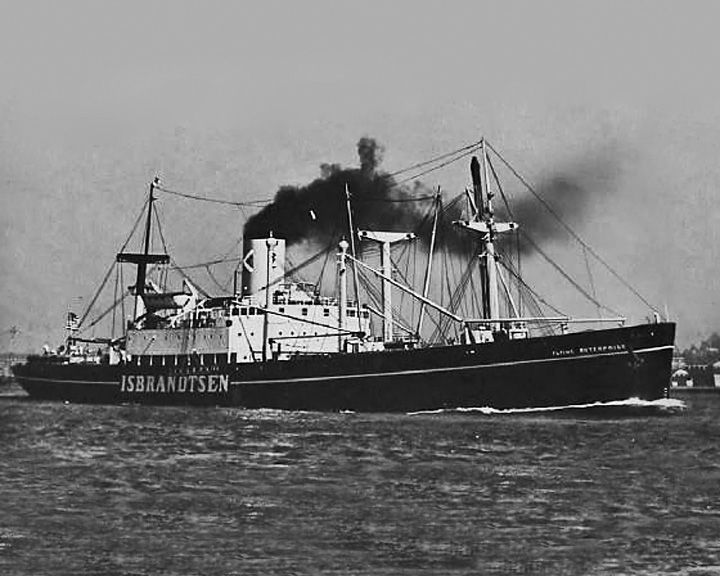 (Another (Another Flying Enterprise — American cargo ship in World War II, then a tramp steamer Subject of intense deep-sea diving and salvage. In 1960, a portion of the cargo was salvaged by an Italian company. In 2001, a team of Danish and British divers re-discovered the lost shipwreck almost 50 years after she had sunk. LAUNCHED: 1944, March → FATE: Sank south of Cornwall, England January 10, 1952. |
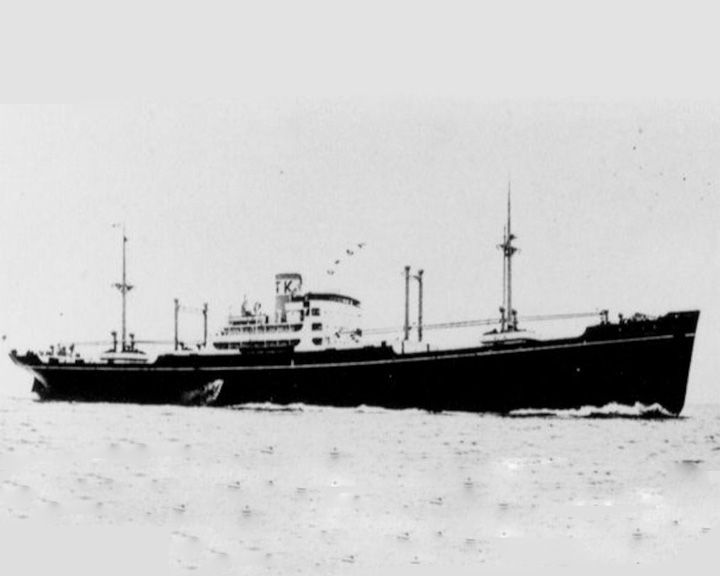 Fujikawa Maru — Japanese cargo ship, transport ship Her sunken remains are a leading wreck diving site for scuba divers. She was sunk in Truk Lagoon during Operation Hailstone during World War II. LAUNCHED: 1938 → FATE: Sunk by torpedo on February 17, 1944. |
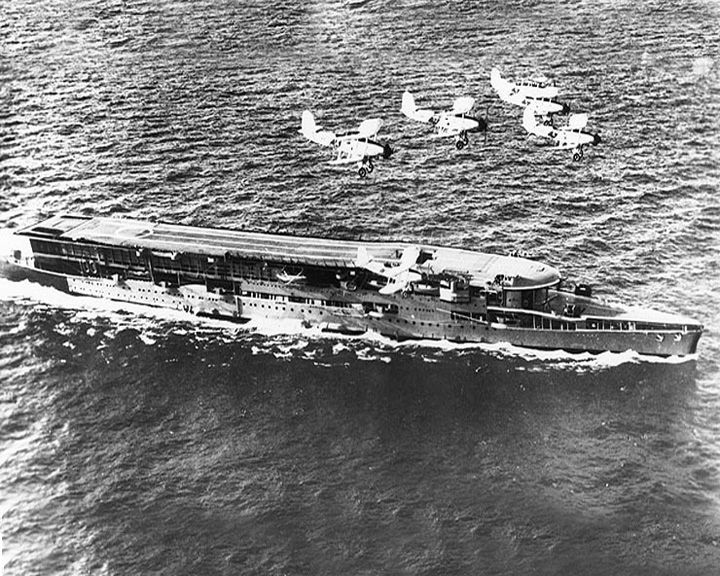 Furious, HMS — British battlecruiser (modified while under construction as an aircraft carrier) First aircraft carrier; her forward turret was removed and a flight deck was added in its place. Spent last of World War I and much of World War II as an aircraft ferry. LAUNCHED: 1916, August 18 → FATE: Sold for scrap in 1948. |
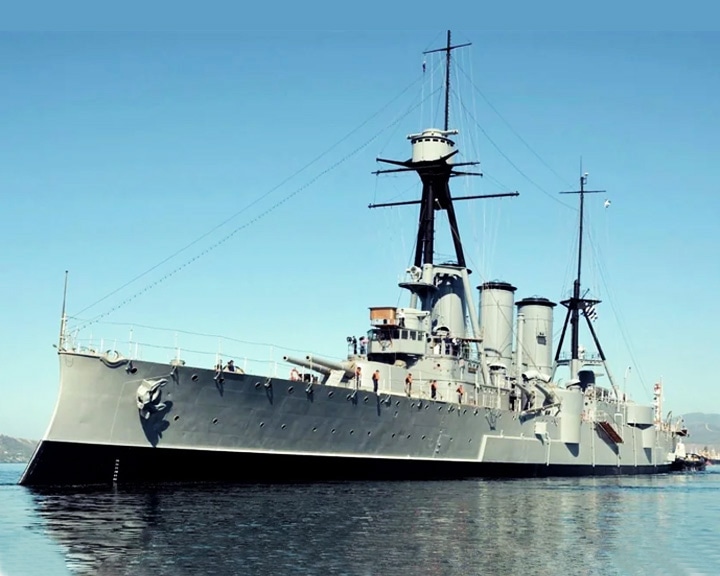 Georgios Averof — Greek armored cruiser The only anored cruiser still in existence. The ship served as the Greek flagship during most of the first half of the 20th century. LAUNCHED: 1910, March 12 → FATE: She has been reinstated on active duty as a museum ship in the Naval Tradition Park in Faliro, Athens. |
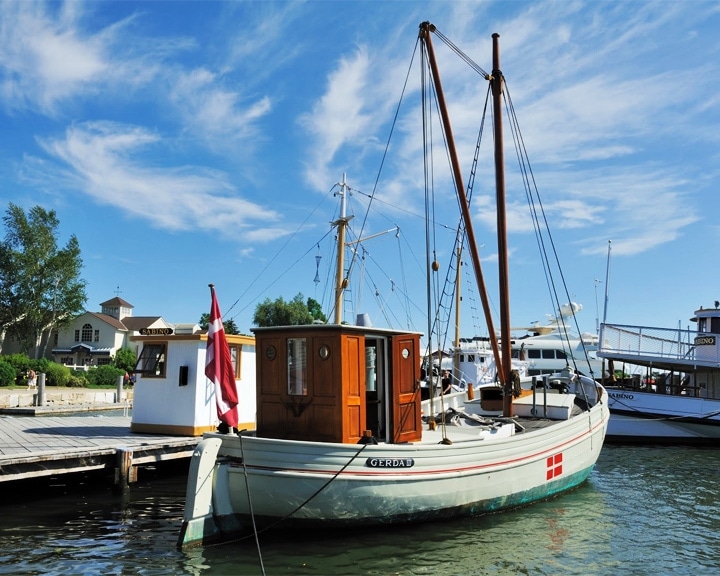 Gerda III — Danish lighthouse tender During WWII, in 1943, she was used to smuggle about 300 Jews from Nazi occupied Denmark to Sweden. The rescue story is the subject of the 1991 film A Day in October. LAUNCHED: 1928 → FATE: On exhibit at the Museum of Jewish Heritage in New York City. |
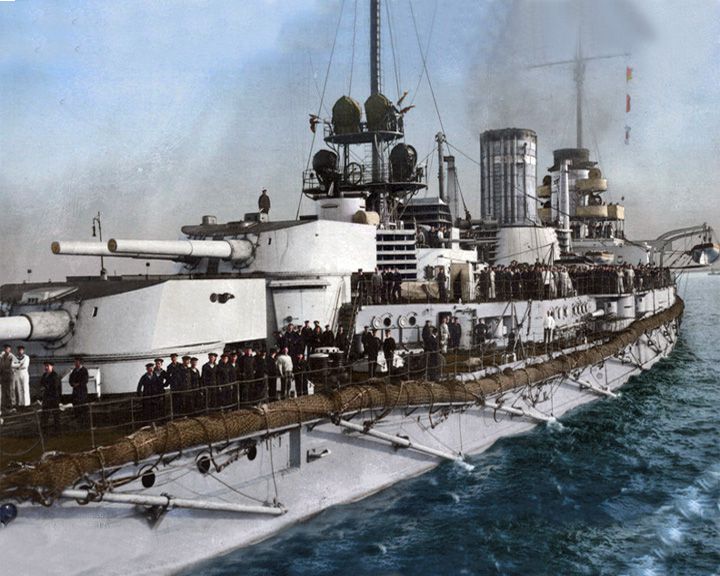 Goeben, SMS — German battlecruiser Last surviving ship built by the Imperial German Navy, and the longest-serving battlecruiser or dreadnought-type ship in any navy. During World War I, she and light cruiser Breslau were transferred to the Ottoman Empire, August of 1914, and became the flagship Yavuz Sultan Selim. LAUNCHED: 1911, March 18 → FATE: Scrapped in 1973. |
|
Page 6
|
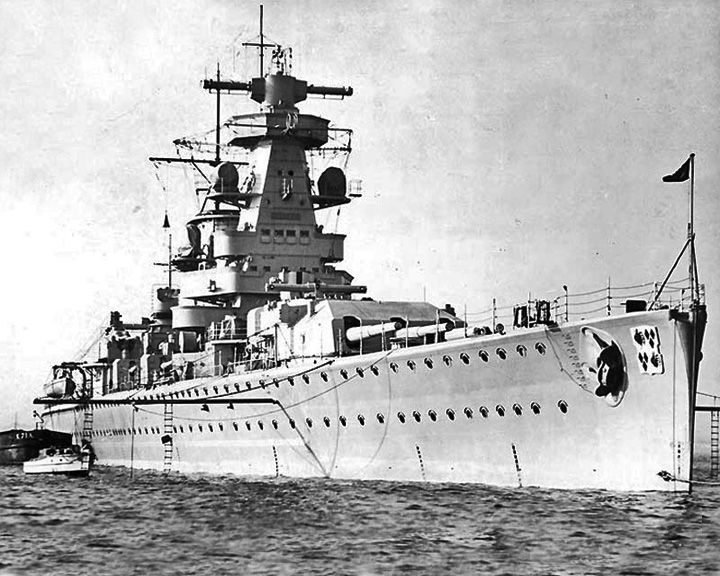 (Another (Another Graf Spee, Admiral — German pocket battleship Though size was limited by the Treaty of Versailles, she was as heavily armed as a battleship. Sank nine Allied merchant ships. Afterwards, ships of this size were called heavy cruisers. LAUNCHED: 1934, June 18 → FATE: Scuttled off Montevideo December 17, 1939. |
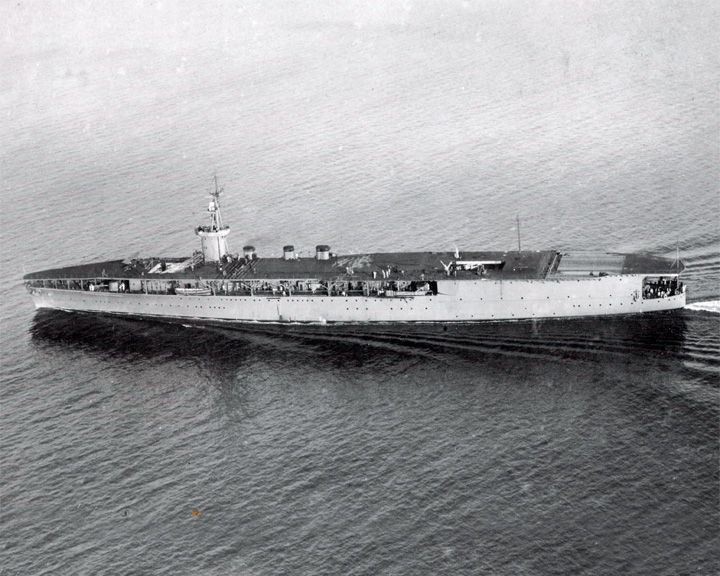 Hōshō — Japanese aircraft carrier First ship designed and built as an aircraft carrier. During World War II, she participated in the Battle of Midway in a secondary role. Afterward, she returned to Japan as a training ship for the duration of the war. LAUNCHED: 1922 → FATE: Scrapped in 1948. |
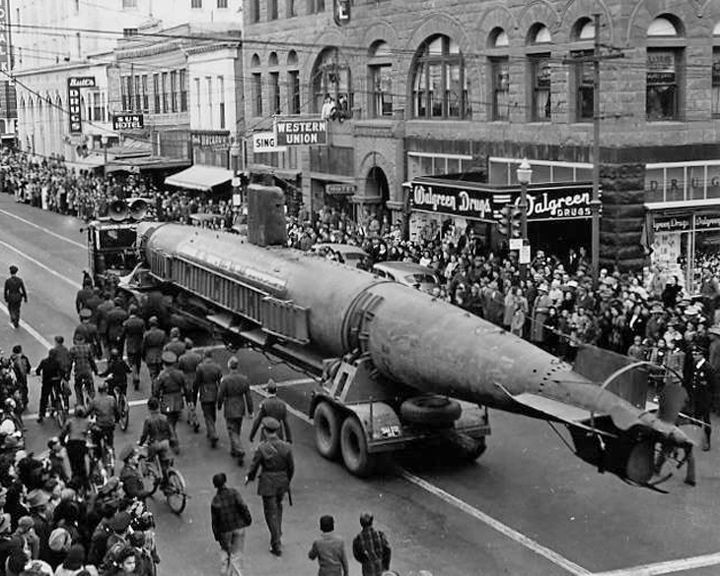 HA. 19 — Japanese midget submarine First shot fired by the U.S. in the World War II was at this minisub as it tried to enter Pearl Harbor. Grounded and abandoned after failing to fired any torpedos, she was pulled out of the sea and was sent to the US mainland in January 1942 where she went on war bond tours. LAUNCHED: 1938 → FATE: On exhibit at the National Museum of the Pacific War in Texas to where she was moved in 1991. |
 Hannibal, USS — American collier A target ship in the Chesapeake Bay. In 1966, a old WW II Liberty ship, the American Mariner, was made a target ship, and, by tradition, was named Hannibal. LAUNCHED: 1898, April → FATE: Sunk as target practice March 1, 1945. |
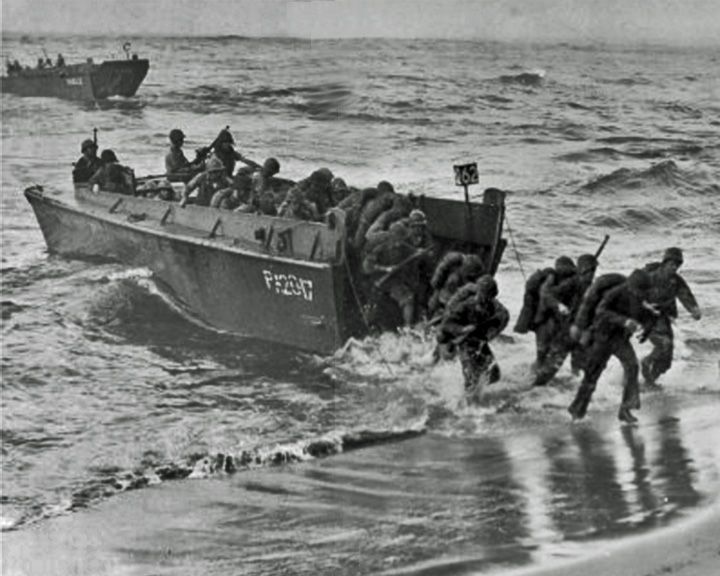 Higgins boat — American troop landing craft (Landing Craft, Vehicle, Personnel or LCVP) Troop landing craft crucial to the Allied victories in World War II. Designed by Andrew Higgins, nearly 20,000 were build. LAUNCHED: 1935 → FATE: Only a few survive and are being restored. |
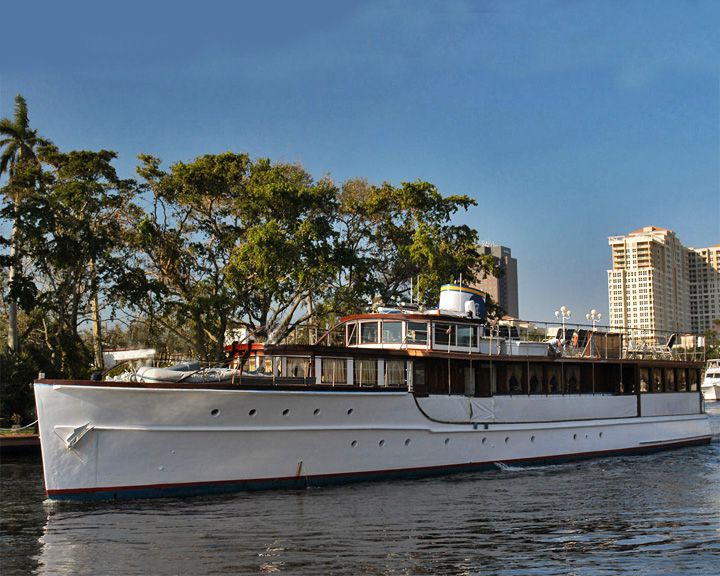 Honey Fitz — American yacht Presidential yacht was renamed after John Francis "Honey Fitz" Fitzgerald, maternal grandfather of President John F. Kennedy. The yacht saw service during World War II as a picket ship off Fire Island, New York. She also served as a training ship for submarine crews. LAUNCHED: 1931 → FATE: Still in service as a pleasure boat. |
 Hood, HMS — British battle cruiser Last battle cruiser built by Britain. Of the 1,418 aboard, only three men survived. LAUNCHED: 1918, August 18 → FATE: Sunk by the German battleship Bismarck at the Battle of the Denmark Strait May of 1941. |
 Houston, USS (CA-30) — American cruiser, Northampton-class During the Battle of Sundra Strait, she put up a valiant effort an against overwhelming Japanese offense. In the 1930s, she made several special cruises, several with President Franklin Roosevelt aboard. LAUNCHED: 1929, September 7 → FATE: Sunk by a torpedo, 1 March 1942. |
|
Page 7
|
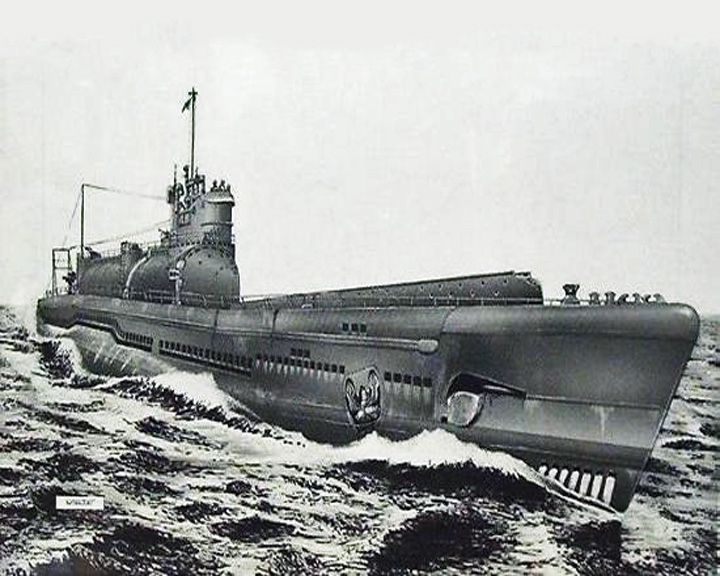 I-400 — Japanese submarine The largest non-nuclear submarines ever built. These submarine aircraft carriers were able to carry three aircraft underwater to their destinations, surface, launch their planes, then quickly dive again. LAUNCHED: 1943, January 1945 July → FATE: Scuttled near Kalaeloa, Hawaii on June 4, 1946. |
 Indiana, USS (BB-1) — American battleship First battleship in the United States Navy comparable to foreign battleships of the time. Decommissioned in 1919, her name was changed to Coast Battleship # 1. She was subsequently used as a target in ordnance tests and sank as a result. LAUNCHED: 1893, February 28 → FATE: Sunk as target on November 1, 1920 |
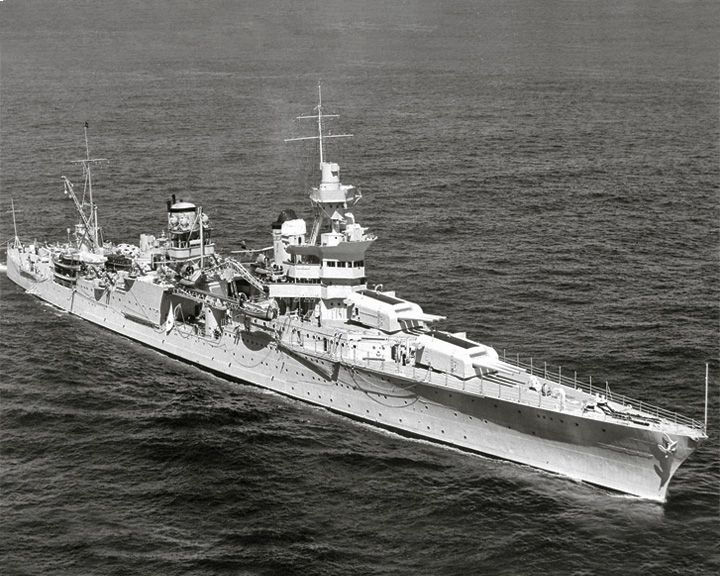 Indianapolis, USS — American Portland-class cruiser Last U.S. ship sunk by enemy in World War II; greatest loss of life at sea in the U.S. Navy's history. Four days after delivering the 1st atomic bomb to Tinian, she was torpedoed and sank with 300 crew. The 900 survivors faced exposure, dehydration, and shark attacks until 4 days later only 317 were rescued. LAUNCHED: 1931, November 18 → FATE: Sunk by a Japanese submarine July 30, 1945. |
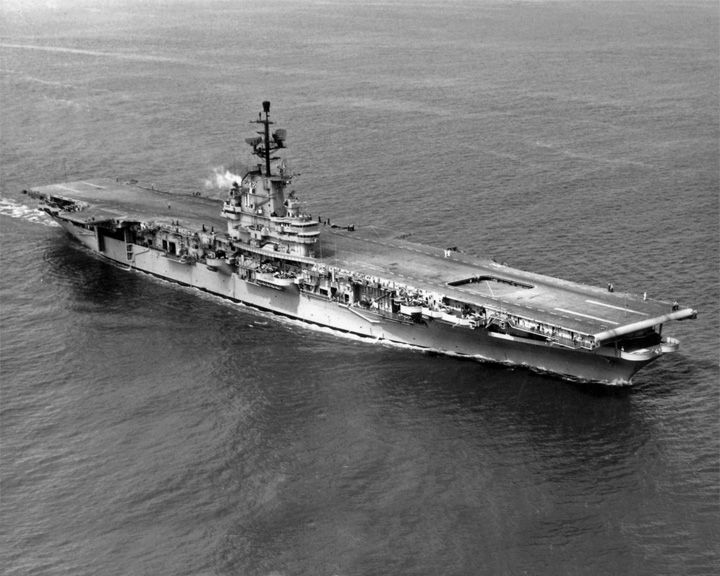 Intrepid, USS — American aircraft carrier; Essex-class In World War II, served extensively in the Pacific; later recovered capsules in space program. Upgraded several times; first American carrier to launch aircraft with steam catapults. One of more than a dozen English and American ships and boats named Intrepid. LAUNCHED: 1943, April 18 → FATE: Currently a museum ship docked at Intrepid Sea, Air & Space Museum in New York City. |
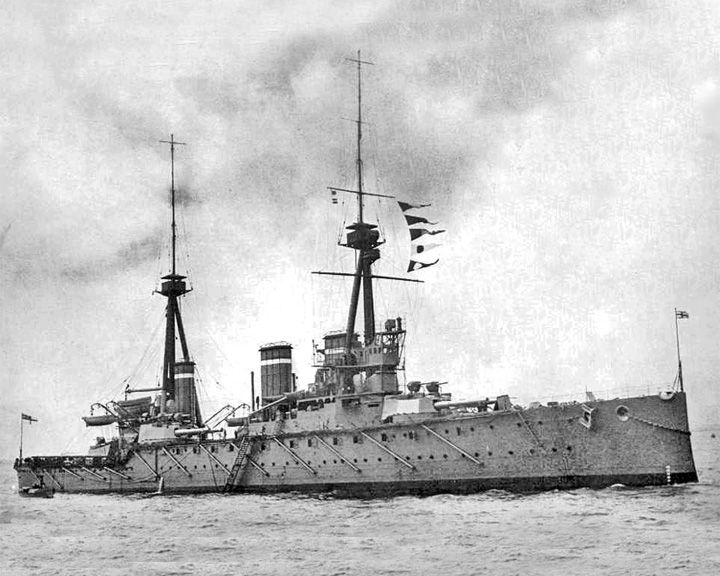 Invincible, HMS — British battlecruiser First battle cruiser to be built by any country in the world. She is one of seven ships named Invincible in the British navy from 1747 to the present. LAUNCHED: 1907, April 18 → FATE: Sunk by the German battleship SMS Lützow at the Battle of Jutland, May 31, 1916. |
 (Another (Another Iowa, USS — American fast battleship First of her class, the last battleship in active service in the world. During a gunnery exercise, on April 19, 1989, an explosion ripped through a gun turret, killing 47 crewmen. LAUNCHED: 1942, August 18 → FATE: Anchored at San Pedro as a museum ship. |
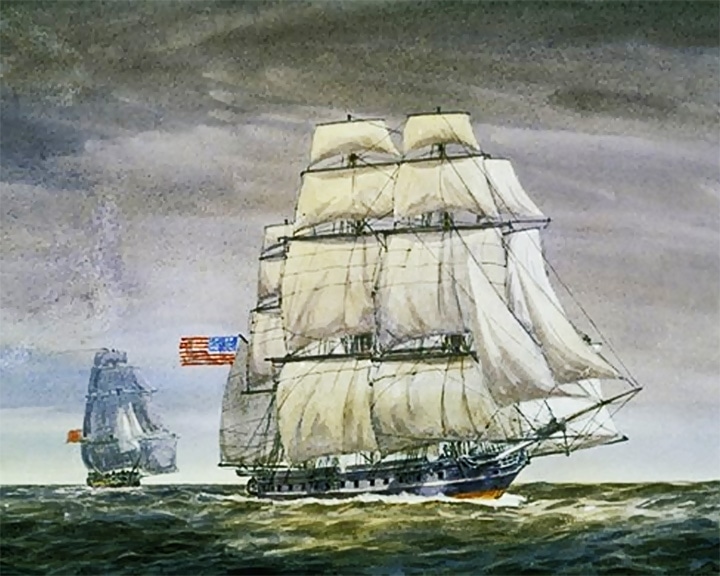 John Adams, USS — American frigate She participated in the raid on Combahee Ferry that Harriet Tubman, the former slave and Union operative, organized with Union colonel Montgomery. She fought in the Quasi-War, the First and Second Barbary Wars, the War of 1812, the Mexican–American War and the American Civil War. LAUNCHED: 1799, October → FATE: Sold October 1867 to the British to use as the Hong Kong Water Police Headquarters. In February 1884, she caught fire and was lost. |
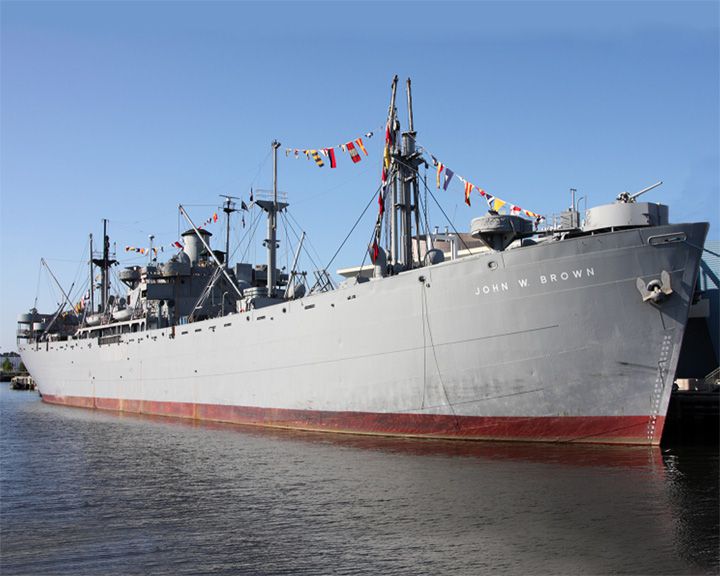 John W. Brown, SS — American liberty ship One of two still operational and one of three preserved as museum ships. After making 12 troop and cargo voyages across the Atlantic during World War II, she served as a training ship from 1946 to 1982. LAUNCHED: 1942, September 7 → FATE: After restoration, now a floating museum stationed in the Chesapeake Bay, Baltimore, Maryland. |
|
Page 8
|
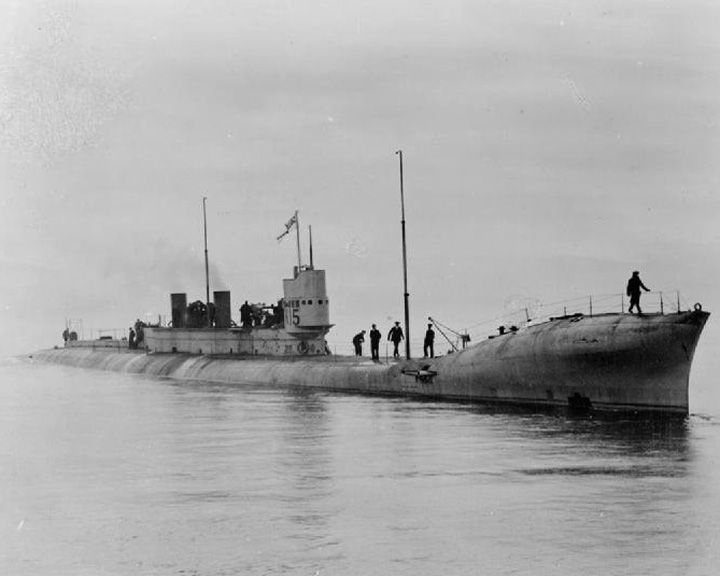 K-13 — British K-class submarine The first in the class of the steam-powered submarines. She sank in an accident during sea trials in early 1917 and was salvaged and recommissioned as HMS K22. 32 people died in the accident and 48 were rescued. LAUNCHED: 1916, November 11 → FATE: Sold for scrapping December 16, 1926 in Sunderland. |
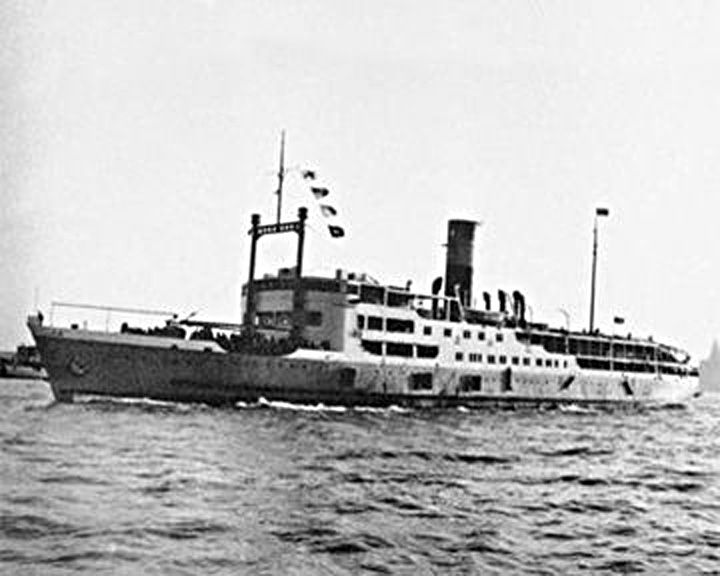 Kiangya, SS — Chinese steamship, passenger Blew up, probably after hitting a World War II Japanese mine, resulting in over 3000 killed. She was packed with refugees from the Chinese Civil War fleeing the advancing Communist army when she sank. LAUNCHED: 1939 → FATE: Sank December 4, 1948 in the mouth of the Huangpu River 50 miles south of Shanghai. |
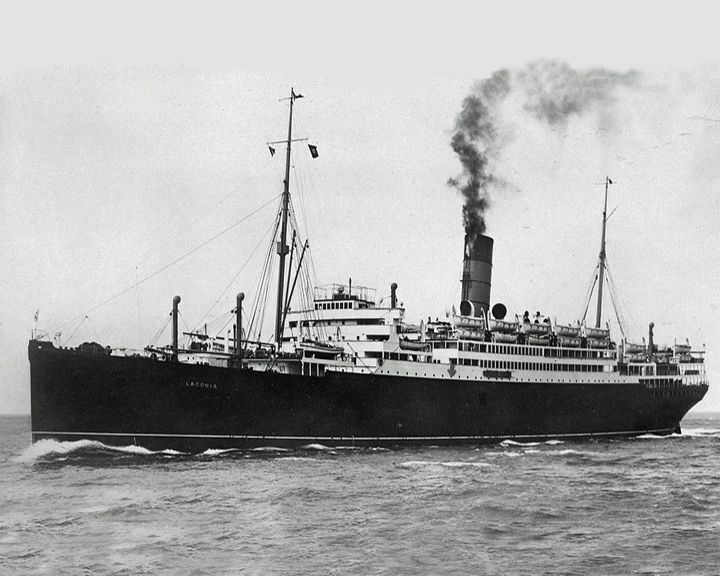 Laconia, RMS — British ocean liner, then converted to a troop ship After a torpedo attack, a dramatic rescue of the ship's passengers turned to disaster and became known as the Laconia incident. U.S. planes attacked the several German U-boats trying to rescue its 2,732 passengers and crew most of whom were abandoned by the subs, resulting in a loss of over 1,649 people. The sinking was portrayed in the 2011 British TV movie. LAUNCHED: 1921, April 18 → FATE: Sunk by German submarine U-156 off the coast of West Africa, September 12, 1942. |
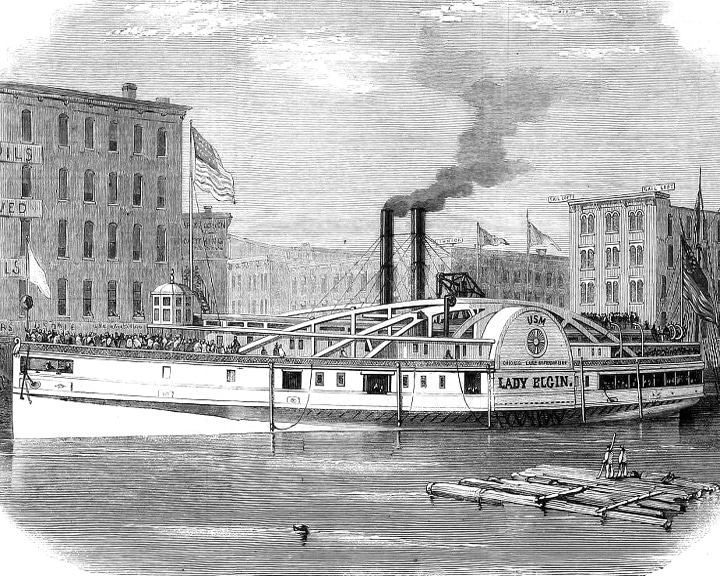 Lady Elgin, PS — American paddle steamer The wooden-hulled sidewheel steamship sank in Lake Michigan near Port Clinton, Illinois with the loss of 300 lives. During her time afloat, she was one of the most elegantly appointed passenger ships sailing the Great Lakes. LAUNCHED: 1851 → FATE: Sunk in collision with schooner Augusta of Oswego September 8, 1860 |
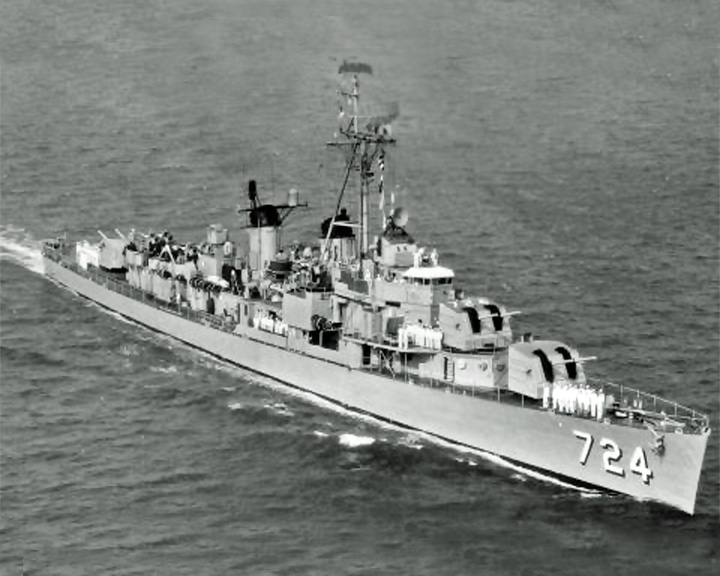 Laffey, USS — American Allen M. Sumner-class destroyer During the battle of Okinawa, she withstood the greatest kamikaze air attack in history, losing 32 killed and 71 wounded. Laffey was declared a National Historic Landmark in 1986, the only remaining US-owned Sumner-class destroyer LAUNCHED: 1943, November 21 → FATE: After WWII, she was repaired and continued to serve until decommissioned March 9, 1975. Laffey is currently a museum ship at Patriots Point in Mount Pleasant, South Carolina. |
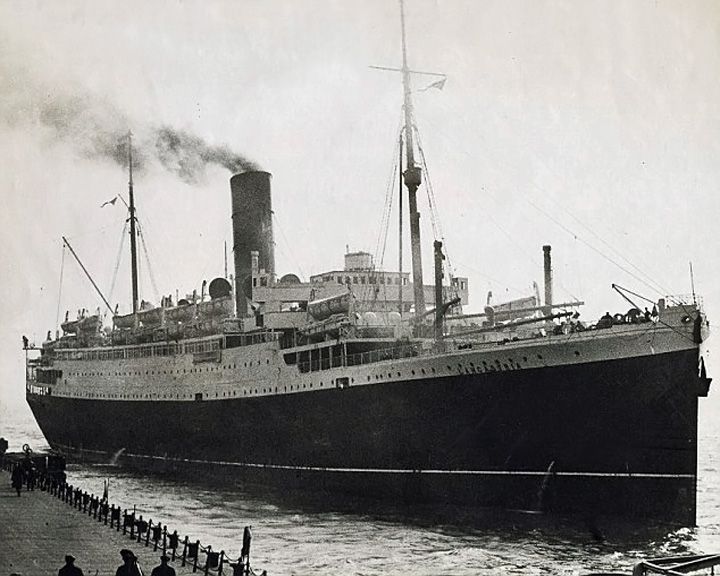 Lancastria, RMS — British ocean liner Worst single loss of life in British maritime history and the bloodiest single engagement for UK forces in World War II. Over 4000 people were lost while evacuating British nationals and troops from France. LAUNCHED: 1922, June → FATE: Sunk off the French port of St. Nazaireon June 17, 1940. |
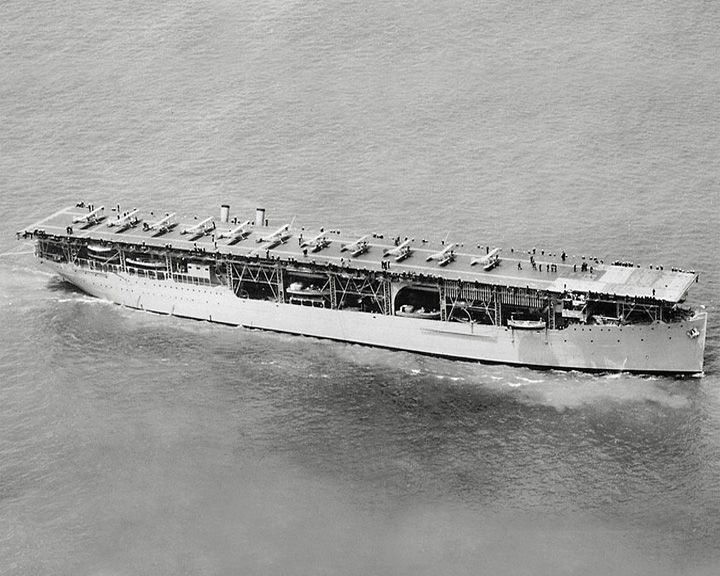 Langley, USS — American aircraft carrier First American aircraft carrier and U.S. Navy's first turbo-electric-powered ship. Following a conversion in 1936 to a seaplane tender, she fought in World War II. LAUNCHED: 1911, built as a collier converted in 1920 → FATE: Attacked and badly damaged by Japanese planes, she was scuttled, February 27, 1942. |
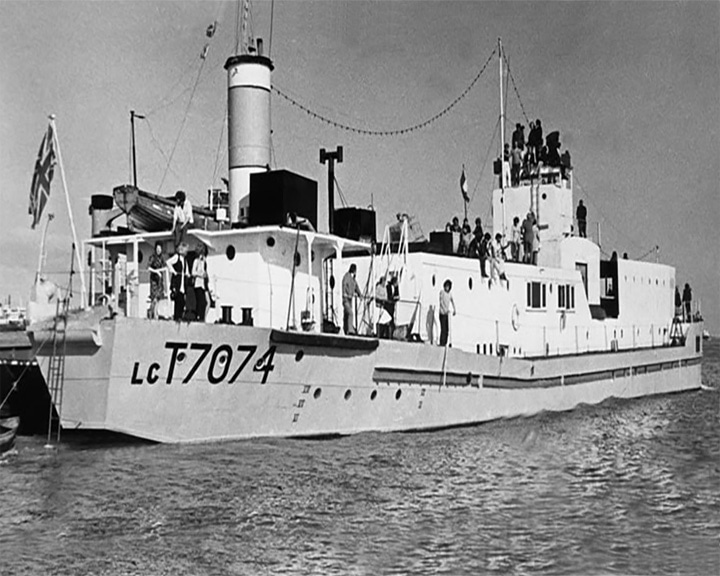 LCT7074, HM — British landing craft, tank (LCT) The last amphibious assault ship in the United Kingdom for landing tanks, other vehicles and troops on beachheads. De-commissioned in 1947 she was renamed Landfall and became the club ship for the Master Mariners’ Club of Liverpool. The craft was later converted into a riverfront nightclub. LAUNCHED: 1944, April 4 → FATE: Salvaged and restored by 2020, then moved to a permanent display at Portsmouth's The D-Day Story museum. |
|
Page 9
|
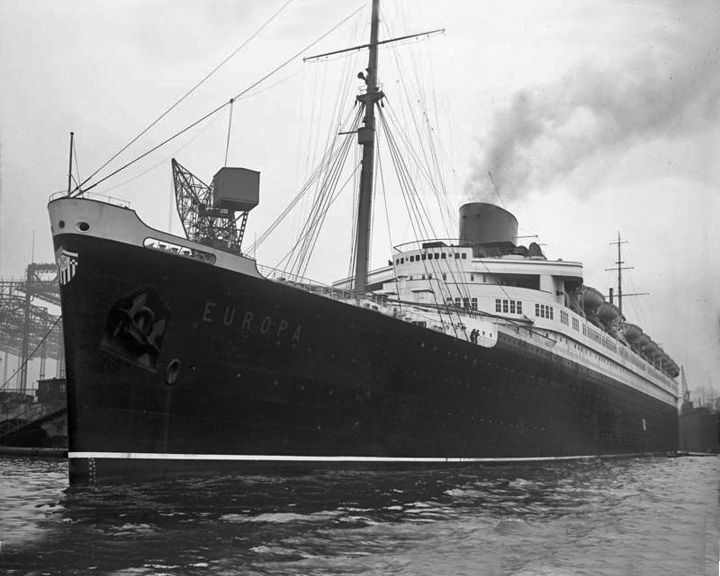 Liberté, SS — German ocean liner; then American war prize; then French owned Featured prominently in the movie The French Line, starring Jane Russell. She was taken as a US war prize at the end of World War II, then used to transport US servicemen back to the states, and finally turned over to the French as war reparations. LAUNCHED: 1928, August 18 → FATE: Retired in 1961 and scrapped in 1962. |
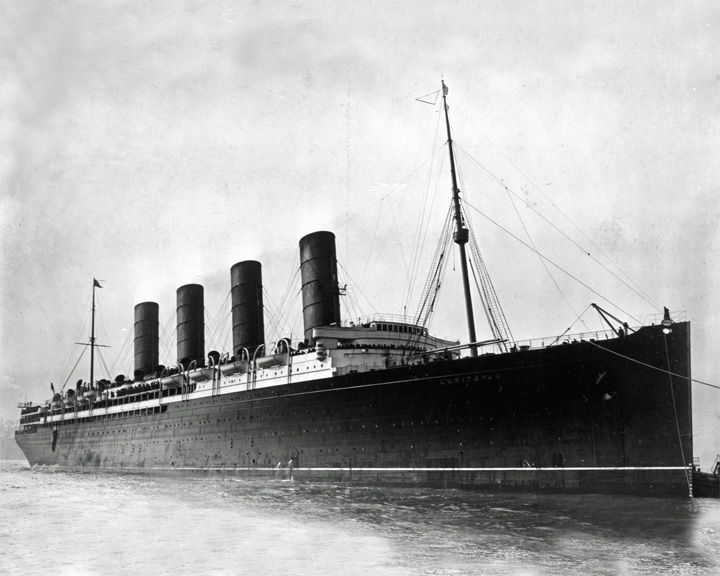 (Another (Another Lusitania, RMS — British ocean liner Torpedoed by German submarine U-20, killing 1,198 people. Her sinking during transatlantic passage turned public opinion against Germany in World War I. LAUNCHED: 1906, June 18 → FATE: Sank 70 kms from the Old Head of Kinsale May 7, 1915. |
 (Another (Another Mars — Swedish three masted warship One of the largest warships at the time and the first ship to sink another ship with gunfire. The shipwreck was found by a team of divers north of the island Oland August 19, 2011. LAUNCHED: 1564 → FATE: Caught fire and exploded during the First Battle of Oland, May 31, 1564. |
 Massachusetts, USS — American South Dakota class battleship Has the distinction of having fired the US Navy's first and last 16-in shells of the World War II. Despite being used as a parts cache to get the Iowa-class battleships back in service, Massachusetts was designated a National Historical Landmark a 14 January 1986. LAUNCHED: 1941, June 18 → FATE: Became a in museum ship at Battleship Cove, Fall River, Massachusetts June, 1965. |
 Meredith Victory, SS — American cargo ship, freighter The "Ship of Miracles" saved more than 14,000 refugees during the Korean War, the largest humanitarian rescue operation by a single ship. The ship was built to transport supplies and equipment overseas during World War II. LAUNCHED: 1945, June 18 → FATE: Broken up for scrap in China in 1993. |
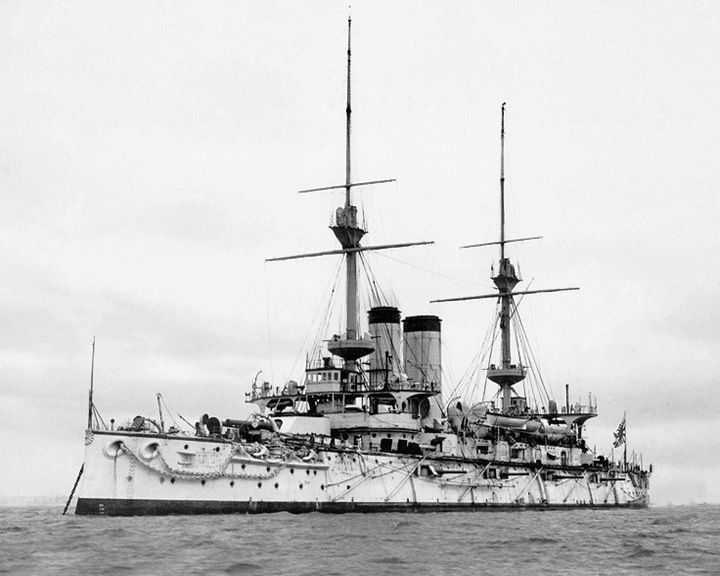 Mikasa — Japanese pre-dreadnought battleship (British built) The last remaining example of a pre-dreadnought battleship anywhere in the world. After the Russo-Japanese War, her magazine accidentally exploded and sank the ship. She was salvaged and repaired and then served in World War I. LAUNCHED: 1900, November 18 → FATE: She was preserved as a museum ship and later refurbished and is on exhibit in Mikasa Park, Yokosuka. |
 Missouri, USS — American battleship The site of the surrender of Japan which ended World War II. She was the last battleship built by the United States. LAUNCHED: 1944, January 18 → FATE: On exhibit near the USS Arizona Memorial at Pearl Harbor in Honolulu, Hawaii. |
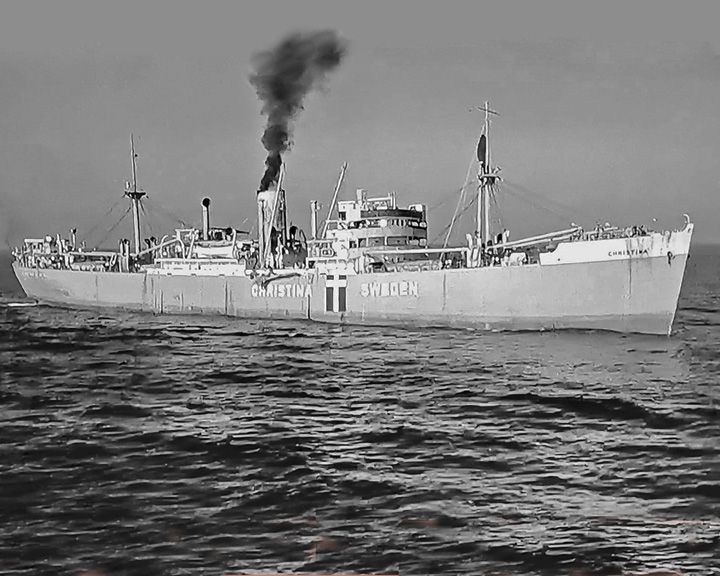 (Another (Another Morituri — German cargo ship In the movie Morituri a freighter hauling rubber to Nazi Germany during WWII; starring Marlon Brando and Yul Brynner. The actual unnamed old German freighter was used for nearly all the film sequences. LAUNCHED: 1965, movie release → FATE: Inconclusive. |
|
Page 10
|
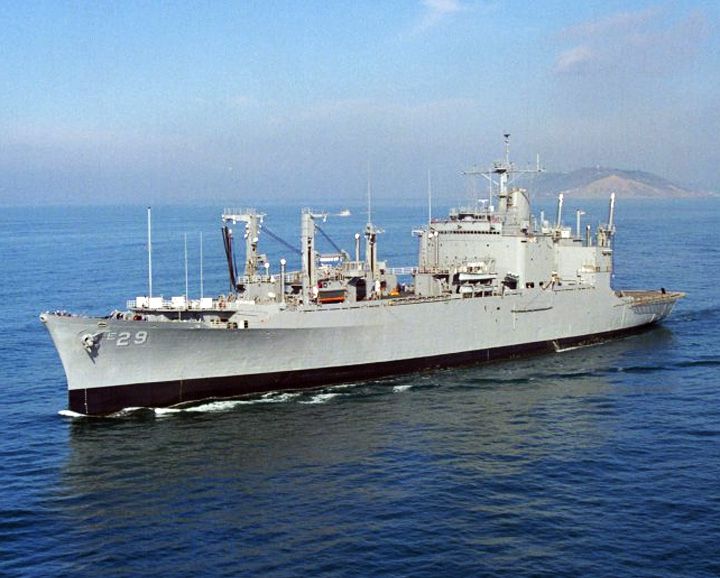 Mount Hood, USS — American ammunition ship The ship and dozens of surrounding vessels were obliterated with over 370 casualties in a massive explosion. The ship's 3800 tons of ordnance produced a blast equivalent to a tactical nuclear weapon. LAUNCHED: 1943, November 28 → FATE: Exploded on November 10, 1944, at Seadler Harbor on Manus Island. |
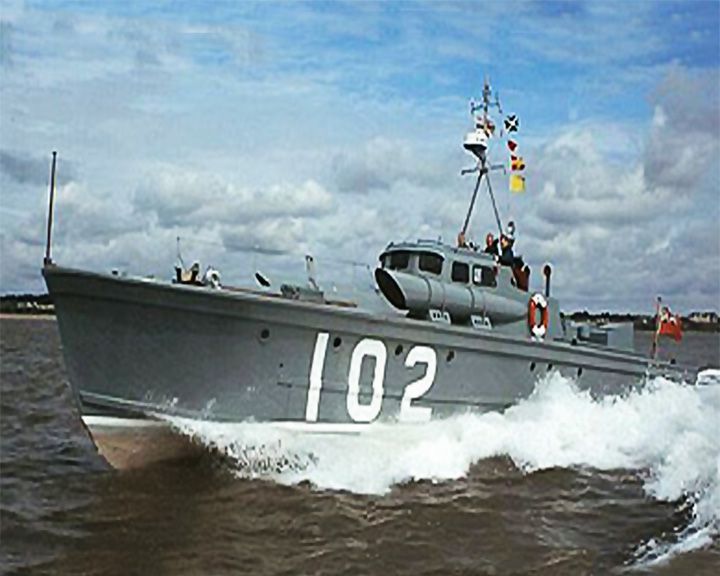 MTB 102 — British motor torpedo boat The the fastest wartime British naval vessel in service at 48 knots and the smallest vessel to ever serve as a flagship for the Royal Navy. In 1944 she carried Winston Churchill and General Eisenhower to review the fleet for Operation Overlord, the invasion of Normandy, World War II. She appeared as herself in the 2017 war film Dunkirk. LAUNCHED: 1937 → FATE: On exhibit at Lowestlft, on the North Sea. |
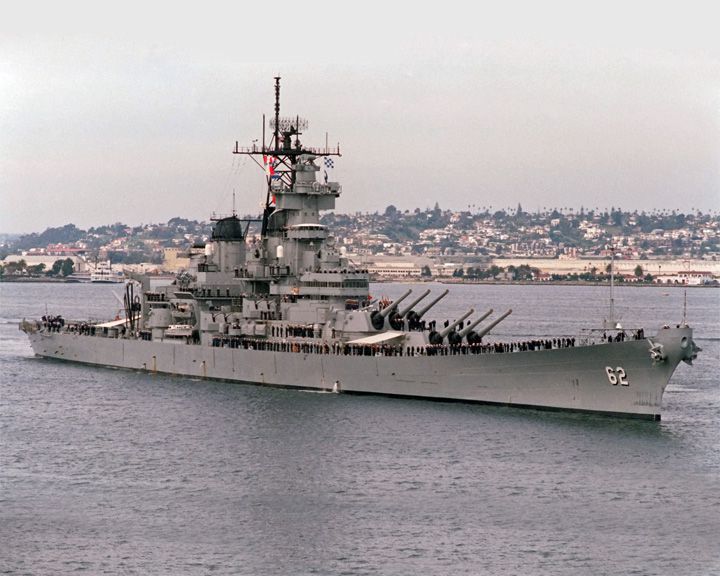 New Jersey, USS — American battleship Earned more battle stars for combat actions than the other American battleship. She was the only U.S. battleship to provide gunfire support during the Vietnam War. LAUNCHED: 1942, December → FATE: In a museum at the Camden Waterfront, Camden, New Jersey. |
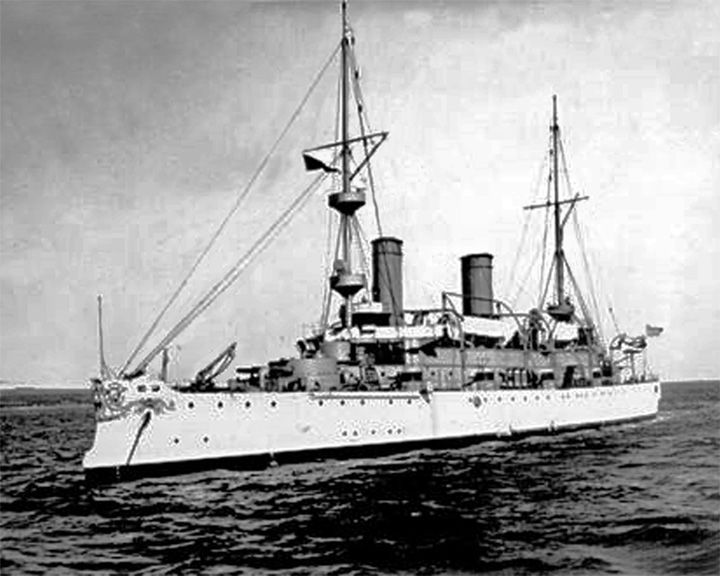 Olympia, USS — American protected cruiser Famous as the flagship of Commodore George Dewey at the Battle of Manila. She is the sole floating survivor of the US Navy's Spanish American War fleet. LAUNCHED: 1892, November 18 → FATE: Restored as a museum ship at the Independence Seaport Museum in Philadelphia. |
 Orion, RMS — British ocean liner First to offer modern passenger comforts in ocean travel including air conditioning.. She was launched at England from Brisbane, Australia by wireless remote by the Duke of Gloucester. She served as a troop ship in World War II, then converted to a passenger liner in 1946. LAUNCHED: 1934, December 18 → FATE: Broken for scrap at Antwerp, Belgium in 1963. |
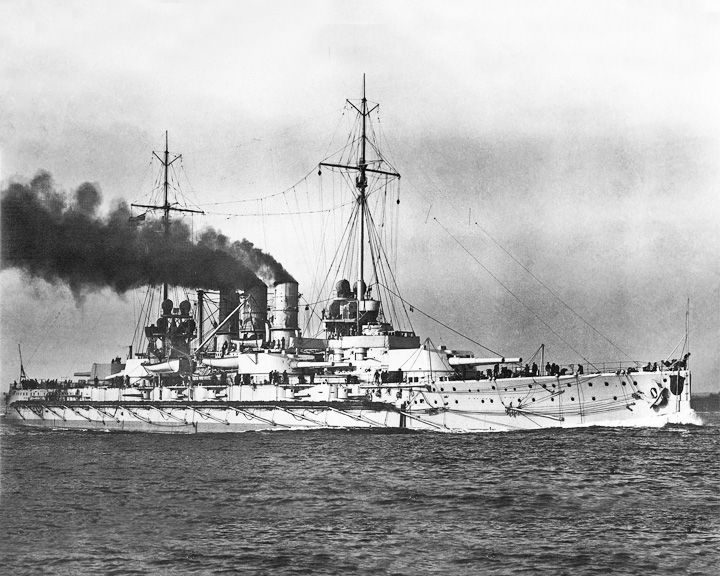 Ostfriesland, SMS — German battleship, ceded to America after World War II Sunk by bombs dropped from aircraft by General Billy Mitchell to demonstrate air power. After having seen action in World War I, the ship was ceded to the United States as war reparations. LAUNCHED: 1909, Septmber 30 → FATE: Sunk by bombs off Cape Hatteras July 21, 1921. |
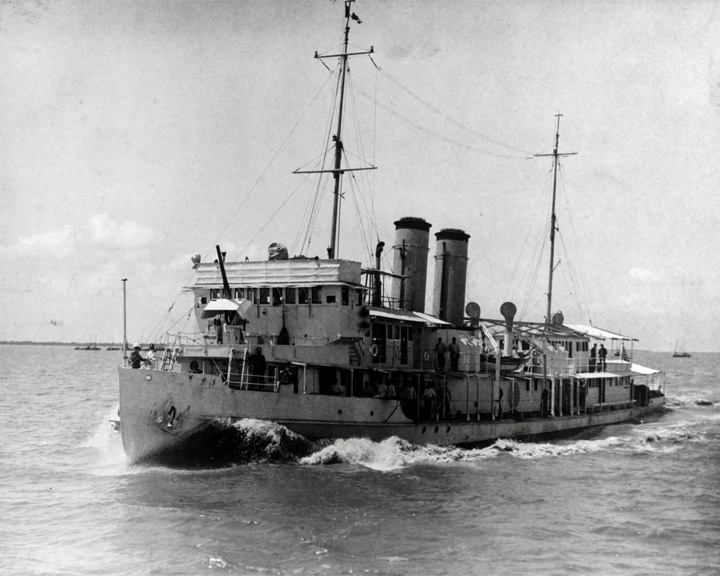 Panay, USS — American river gunboat The USS Panay incident; on December 12, 1937, a Japanese bombing attack on this U.S. Navy river gunboat and three Standard Oil Company tankers on the Yangtze River. Two newsreel cameramen were present on Panay and filmed much of the attack and afterward from shore as Panay sank. See Newsreel. LAUNCHED: 1927, November 10 → FATE: Sunk in December 12, 1937. |
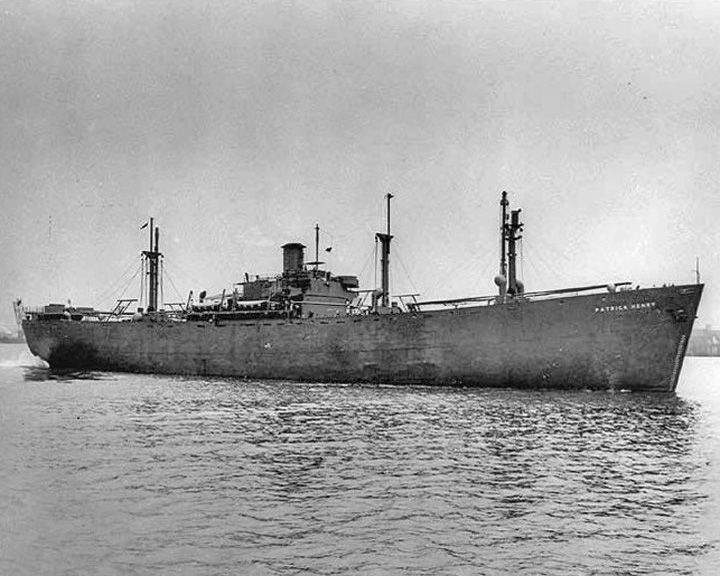 Patrick Henry, SS — American liberty ship; cargo ship First of 2751 liberty ships built during World War II. Liberty ships were built in a mass production method, each typically in 70 days or less. SS Patrick Henry made 12 voyages across the Atlantic Ocean. LAUNCHED: 1941, September 18 → FATE: Went aground off the coast of Florida July of 1946, scrapped in 1960. |
|
Page 11
|
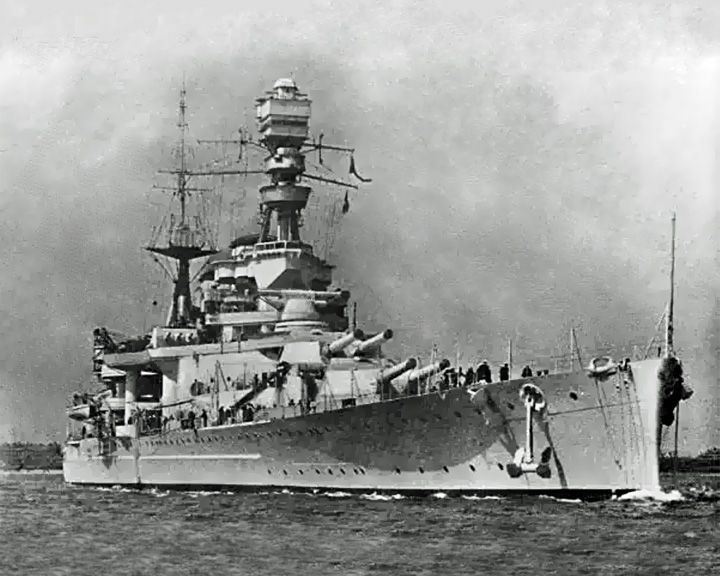 Prince of Wales, HMS — British battleship She and Repulse were the first capital ships to be sunk solely by naval air power on the open sea. She was involved in several key actions of the World War II, including the Battle of the Denmark Strait against the German battleship Bismarck. LAUNCHED: 1939, May 18 → FATE: Sunk on December 10, 1941 by Japanese air attack off Kuantan, South China Sea. |
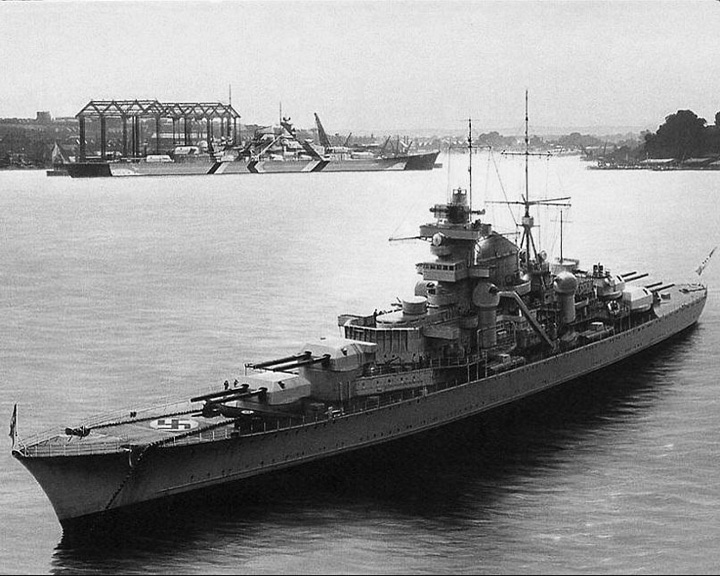 Prinz Eugen — German Admiral Hipper-class heavy cruiser After World war II ended, the US Navy assigned her to the Operation Crossroads nuclear tests at Bikini Atoll. During the Battle of Denmark Strait (May 24, 1941), she and Bismarck engaged and sank the British ships HMS Hood and HMS Prince of Wales. LAUNCHED: 1938, August 22 → FATE: Having survived the atomic blasts, she was towed to Kwajalein Atoll, where she ultimately capsized and sank in December 1946. |
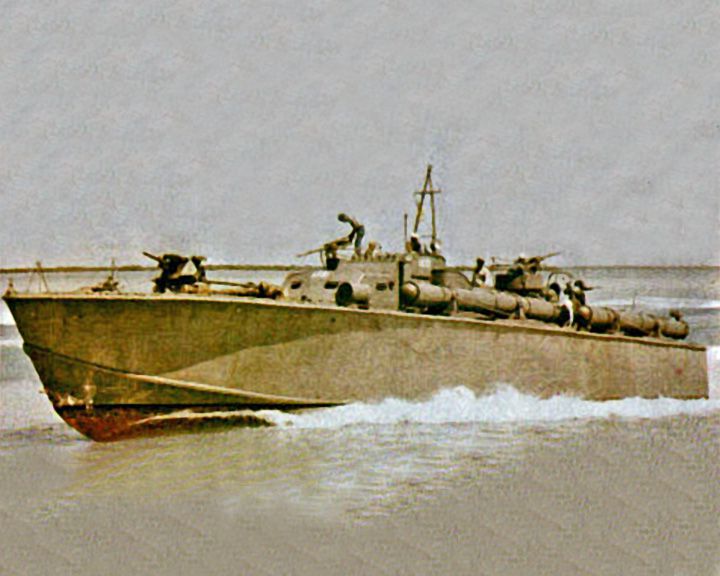 PT 109 — American motor torpedo boat Commanded by Lieutenant John F. Kennedy. The movie of the incident PT 109 was made with President Kennedy's approval provided the events be historically accurate, and the profits go to the survivors of PT 109 and their families. LAUNCHED: 1942, June 18 → FATE: Rammed and sunk in the Solomon Islands by the Japanese destroyer Amagiri on a moonless night, August 2, 1943 during World War II. |
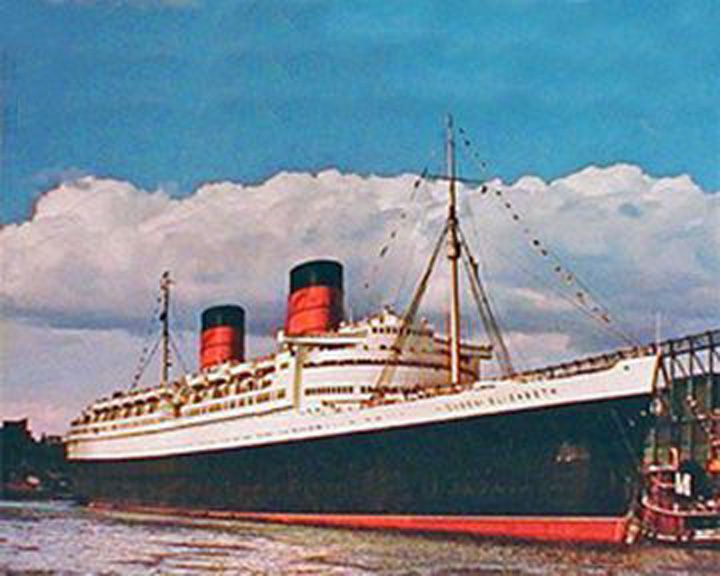 (Another (Another Queen Elizabeth, RMS — British ocean liner With sister ship Queen Mary, dominated the transatlantic passenger service. She was used in World War II as troop transport. After being converted to a university and renamed Seawise University, she was destroyed by fire. The charred wreck was featured in the 1974 James Bond movie The Man with the Golden Gun. LAUNCHED: 1938, September 18 → FATE: After a fire, capsized in Hong Kong Harbor, January 9, 1972. |
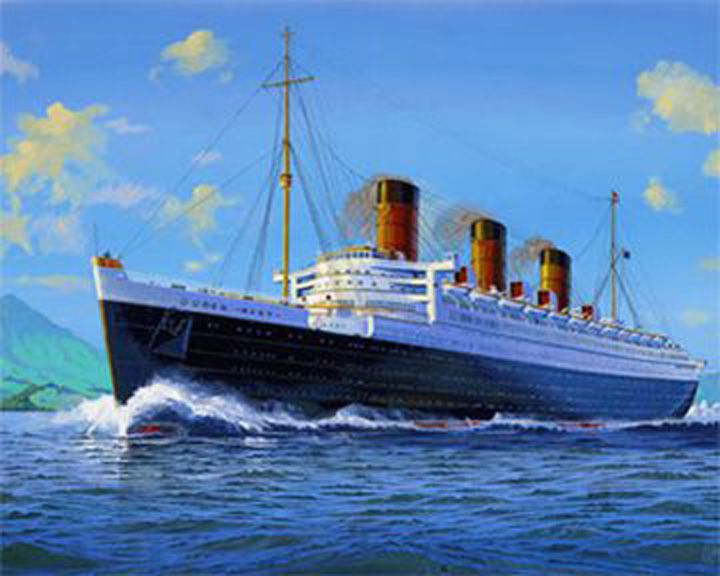 Queen Mary, RMS — British ocean liner Once dominated transatlantic passenger service with sister ship Queen Elizabeth. She was used in World War II as troop transport carrying up to 15,000 passengers at a time. Featured in the 1972 movie The Poseidon Adventure and the 1981 movie Goliath Awaits. LAUNCHED: 1934, Septmber 26 → FATE: After sailing nearly 4 million miles, she was retired in 1967 and berthed in Long Beach, California as a museum ship and hotel from 1974 to present. |
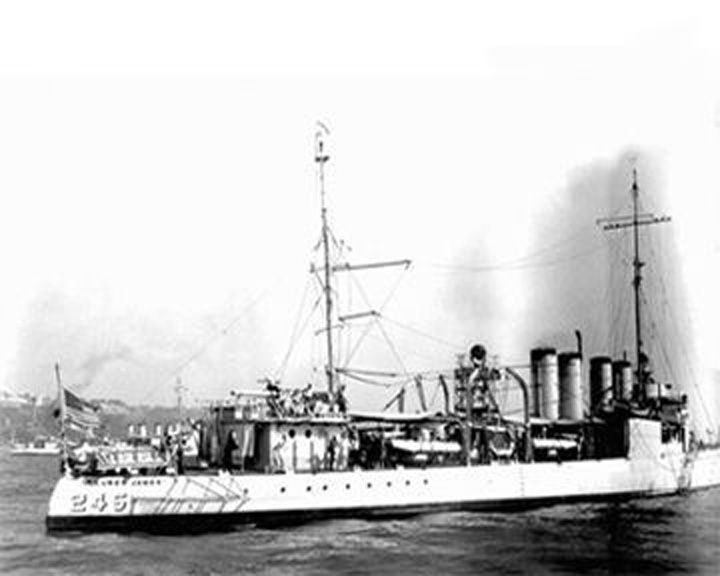 Reuben James, USS — American destroyer First US ship to be sunk in World War II. She was torpedoed while escorting an Atlantic convoy of supply ships to Britain; 159 crew were lost, 44 survived. LAUNCHED: 1919, October → FATE: Sunk October 31, 1941. |
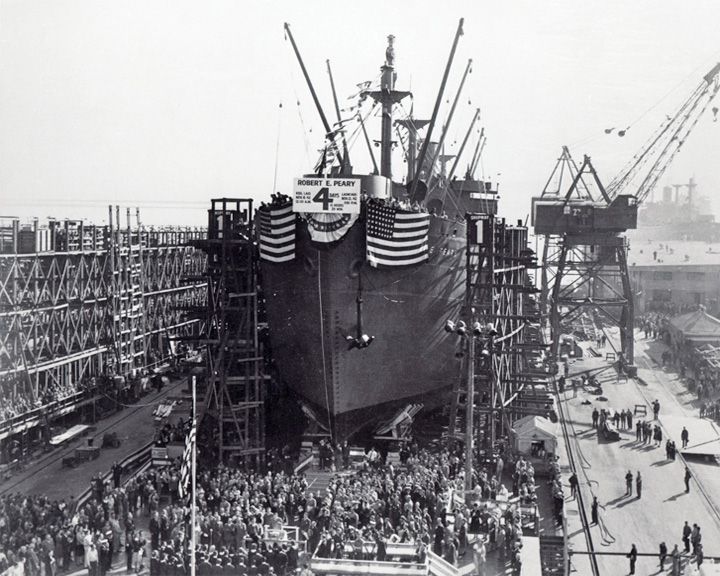 Robert E. Perry, SS — American liberty ship Gained fame during World War II for being built in the shortest time for such a large vessel. Typical completion of liberty ships took 50 days; she was completed in 4 days 15 hours and 29 minutes after the keel was laid down. LAUNCHED: 1942, November 12 → FATE: Scrapped at Baltimore, June 1963. |
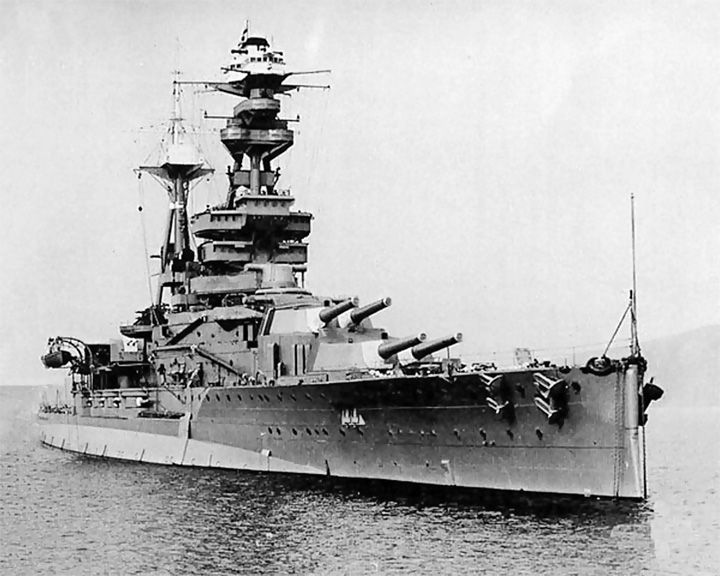 (Another (Another
Royal Oak, HMS — British Battleship, Revenge-class The first of five Royal Navy battleships and battlecruisers sunk in the World War II. When she was torpedoed, 835 of her 1,234 crew were killed. The brass letters of her name were removed from the sunken ship and are now displayed in the Scapa Flow visitor center. LAUNCHED: 1914, November 17 → FATE: Was sunk in Scapa Flow in October 1939 by a German U-boat, |
|
Page 12
|
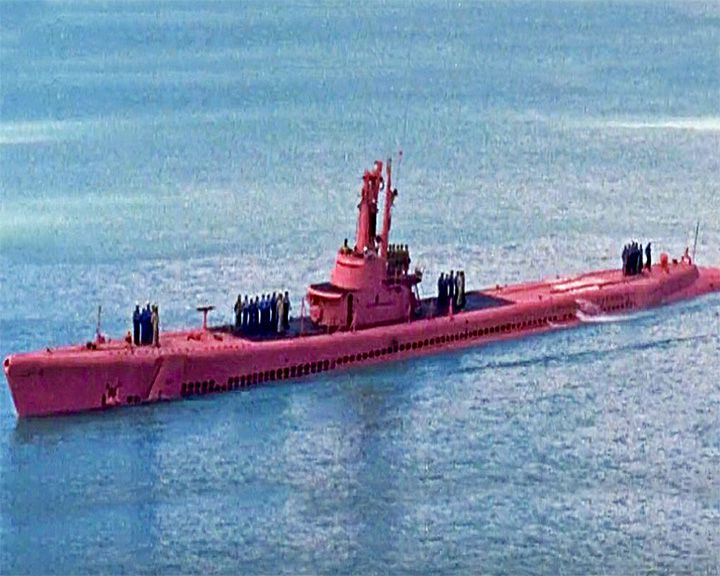 (Another (Another Sea Tiger, USS — American submarine A fictional U.S. Navy submarine in the 1959 movie Operation Petticoat during the opening days of World War II. Stand-in boats were USS Balao painted pink for exterior shots and USS Archerfish with the standard colors of gray and black for interior and some exterior shots. LAUNCHED: 1959 → FATE: Inconclusive. |
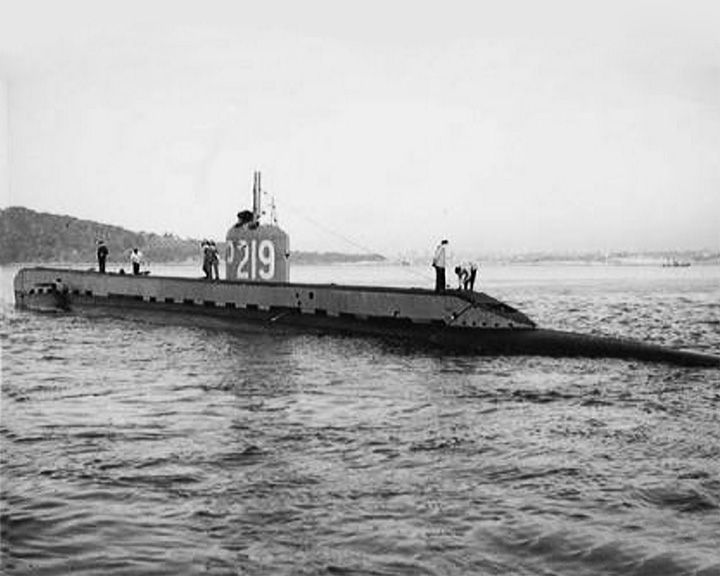 Seraph, HMS — British submarine Known as "the ship with two captains," briefly became the USS Seraph. During World War II, she released a corpse ("The Man Who Never Was") onto the shores off Gibraltar carrying decoy papers to fool the Nazis as part of "Operation Mincemeat." LAUNCHED: 1941, October 18 → FATE: Scrapped in December of 1962. |
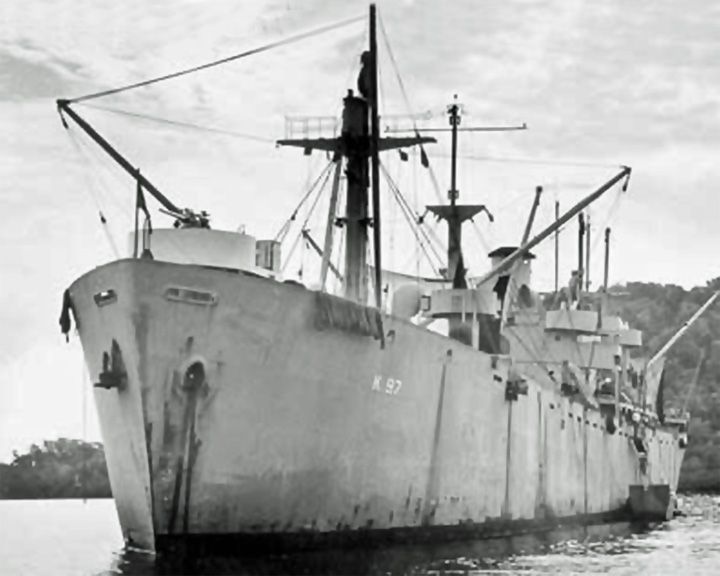 Serpens, USS — American Crater-class cargo ship The most catastrophic single-event loss of life in the history of the U.S. Coast Guard with 250 casualties. In the explosion, a 12-ton locomotive, the wooden pier it sat on, and 16 boxcars loaded with bombs and ammunition disappeared completely. LAUNCHED: 1943, April 5 → FATE: Exploded in complete destruction January 29, 1945, on the coast of Guadalcanal. |
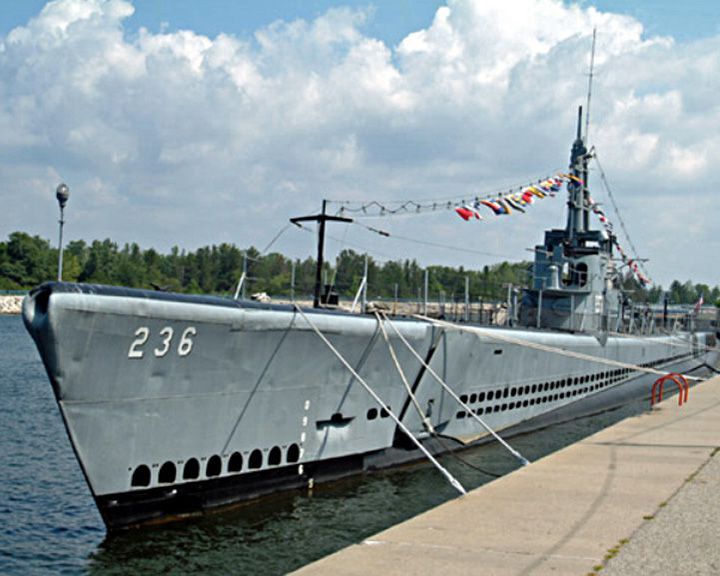 Silversides, USS — American Gato-class submarine One of the most successful submarines in the Pacific Theater of World War II, with 23 sinkings totalling more than 90,000 tons. She was used to depict the fictional submarine USS Tiger Shark in the 2002 film Below LAUNCHED: 1941, August 18 → FATE: Currently serves as a museum ship at the USS Silversides Submarine Museum in Muskegon, Michigan, and is a National Historic Landmark. |
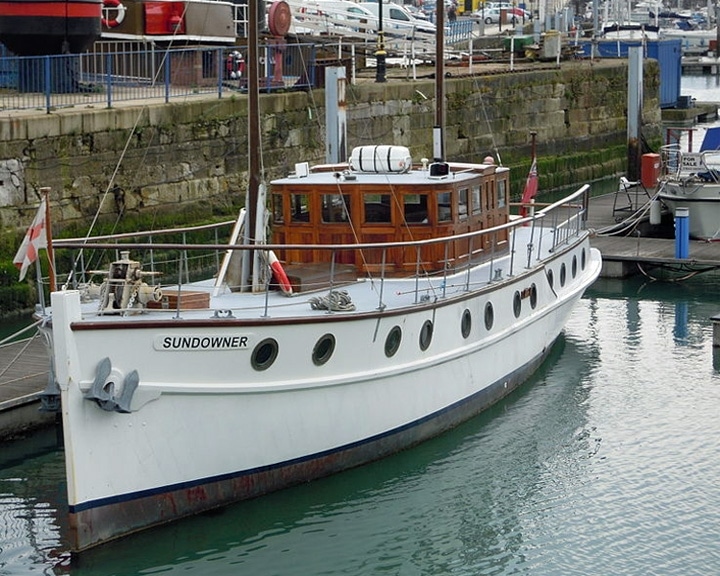 Sundowner — British motor yacht She participated in the Dunkirk evacuation as one of the "little ships" as well as a number of commemorations of the event. She was formerly owned by Charles Lightoller who was Second Officer aboard the ill-fated RMS Titanic and survived. LAUNCHED: 1912 → FATE: A museum ship at the Ramsgate Maritime Museum in Southern England. |
 Sydney, HMAS — Australia Leander-class light cruiser The most devastating loss of life for the Royal Australian Navy when 645 personnel went down with the ship during the battle with the German auxiliary cruiser Kormoran. The wrecks of Sydney and the Kormoran were discovered off the coast of Shark Bay in 2008. The Australians who died are commemorated at the Australian War Memorial. LAUNCHED: 1934, September 22 → FATE: Sunk by the German auxiliary cruiser Kormoran, November 19, 1941 off the coast of Western Australia. |
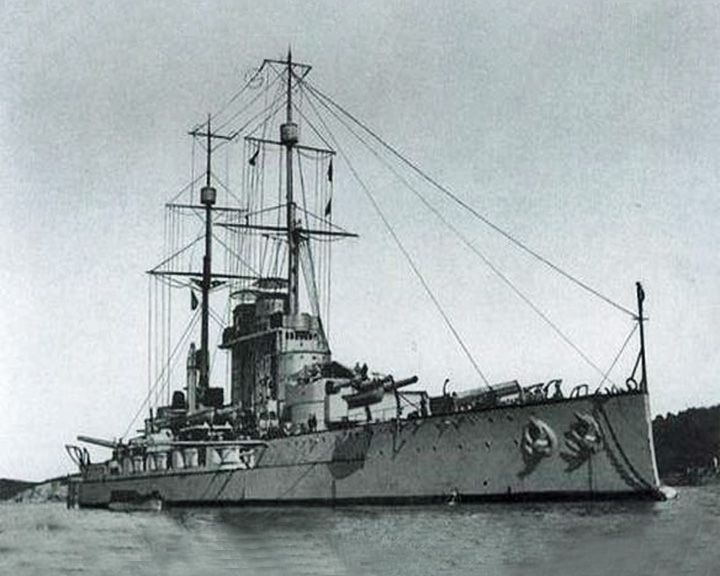 (Another (Another Szent István, SMS — Hungarian dreadnought The only battleship whose sinking was filmed during World War I. Having spent most of the war at anchor or out on gunnery training, she was sunk in her first and only mission; 89 sailors died. LAUNCHED: 1914, January 18 → FATE: Torpedoed off Premuda Island June 10, 1918. |
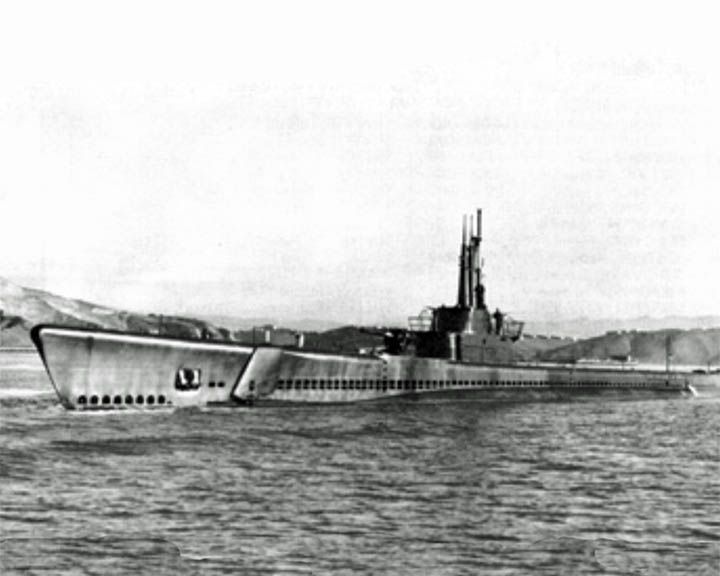 Tang, USS — American Balao class submarine Credited with sinking 31 enemy ships totaling 227,800 tons, unequaled among American submarines during World War II. When she was sunk by a circular run of her final torpedo, several crew escaped the sinking boat with a Momsen lung, the only known occasion of its use. 78 men were lost and the nine survived. LAUNCHED: 1943, August 18 → FATE: Sunk by her own torpedo in the Taiwan Strait October 24, 1944. |
|
Page 13
|
 (Another (Another Texas, USS — American New York class battleship The only remaining World War I era dreadnought battleship. She is noteworthy for being one of only seven remaining ships and the only remaining capital ship to have served in both World Wars. LAUNCHED: 1912, May 18 → FATE: Museum ship at San Jacinto Battleground State Historic Site. |
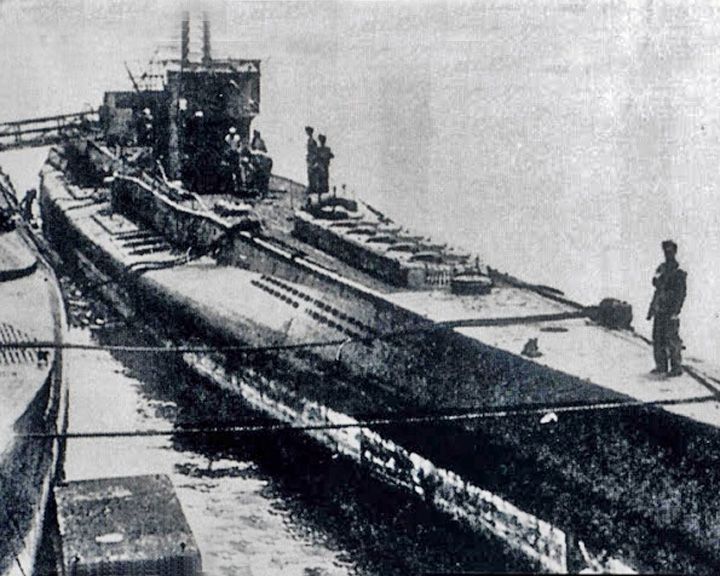 U-234 — German submarine Hitler's last submarine; ironically, there is an isotope of uranium designated U-234. While attempting to deliver uranium to Japan near the end of World War II, she surrendered to the United States on May 14, 1945. LAUNCHED: 1943, December → FATE: Sunk by torpedo November 20, 1947. |
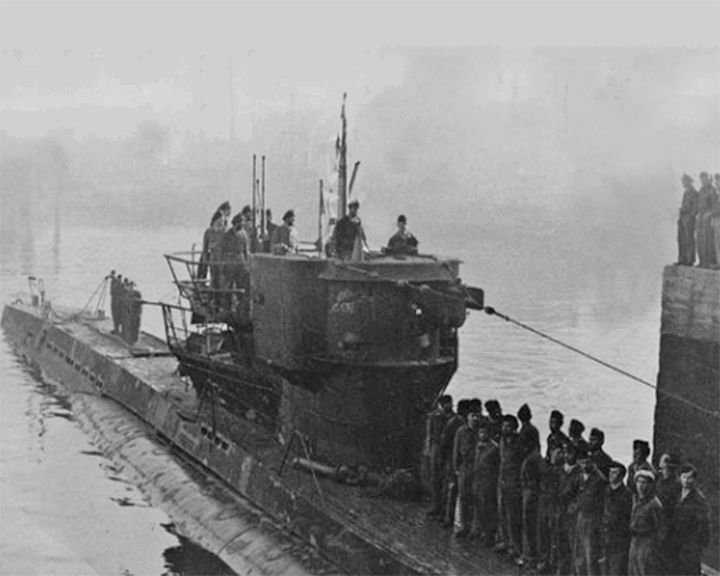 U-480 — German experimental Kriegsmarine Type VIIC submarine The first stealth submarine; she was covered with a special rubber coating making it difficult to detect with SONAR. She sank two warships and two merchantmen ships and was never detected by the British until it was discovered by divers in 1998 south of Isle of Wight. LAUNCHED: 1943, August 14 → FATE: Sunk in February 1945 in an English Channel minefield with the loss of its crew. |
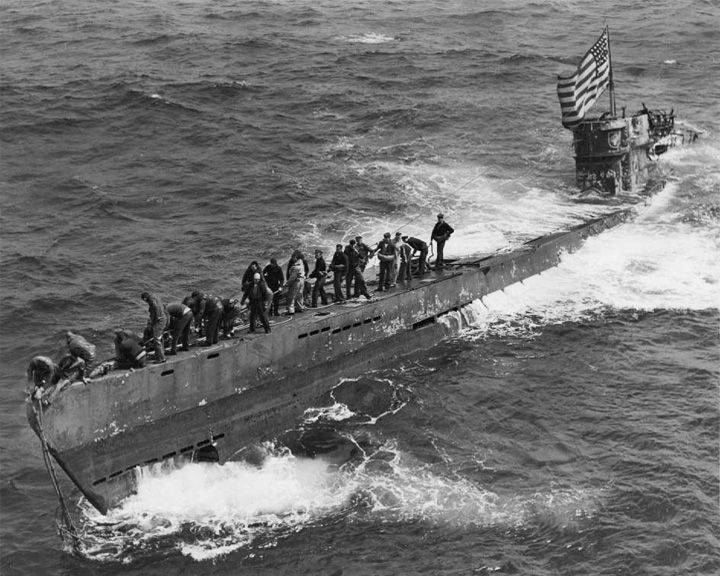 U-505 — German submarine Codebooks, an Enigma machine, and other secret materials that were found on board assisted Allied code breakers during World War II. All but one of crew were rescued from U-505. For U-110, there were casualties among the crew caused by two attacking destroyers. LAUNCHED: 1941, August → FATE: Captured in June 4, 1944. Now at Chicago museum. |
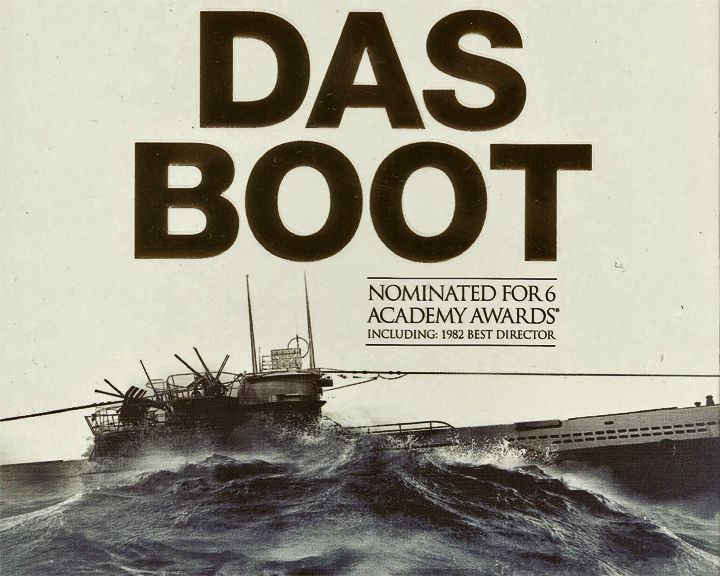 U-96 — German German Type VIIC submarine She was made famous in the 1981 movie Das Boot, a fictional account of its adventures in the Battle of Atlantic of World War II.. During 1941, war a correspondent joined U-96 and, based on his experiences, published a novel that was made into the 1981 movie LAUNCHED: 1940, August 1 → FATE: Sunk in the Hipper Basin at Wilhelmshaven, March 30, 1945. |
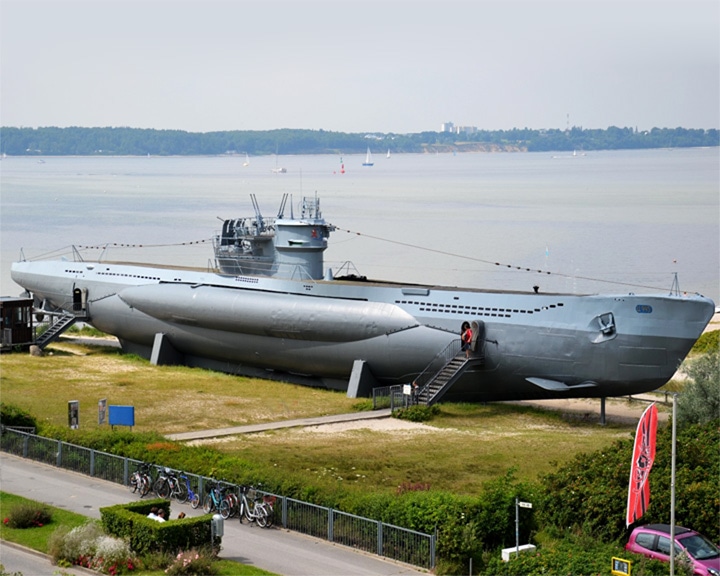 U-995 — German submarine The last existing submarine of its type, which was the workhorse for the German navy during World War II. From 1943 till 1945 the U-995 fulfilled several missions against allied convoys heading for Murmansk, Russia. LAUNCHED: 1942, November 25 → FATE: At the end of WW-II, she was surrendered to the British in December 1945 and then transferred to Norwegian ownership in October 1948. Eventually, in October 1971, she became a museum ship at Laboe Naval Memorial, in Germany. |
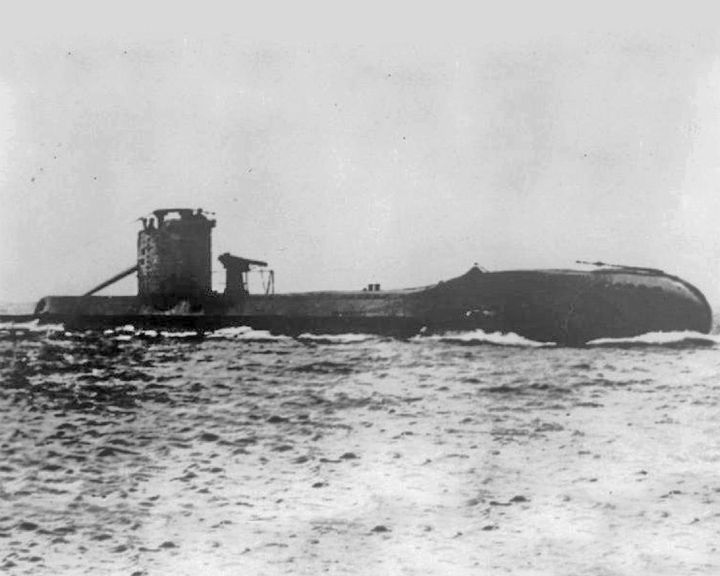 Upholder, HMS — British U-class submarine The most successful British submarine of the World War II sinking a gross tonnage of 93,031. She was one of four U-class submarines with 2 external torpedo tubes at the bows in addition to the 4 internal ones. LAUNCHED: 1940, July 8 → FATE: Lost northeast of Tripoli with all hands, probably sunk by enemy depth charges April 14, 1942. |
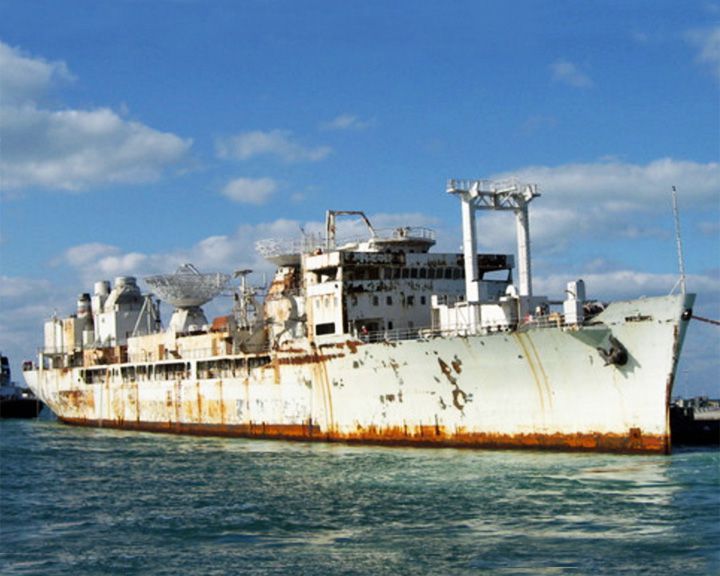 Vandenberg, USAFS — American transport ship Second-largest artificial reef in the world, after the aircraft carrier USS Oriskany. She transported troops in World War II. In 1998, she was featured in the film Virus as the Russian research ship Akademik Vladislav Volkov. LAUNCHED: 1943, October → FATE: Sank May 27, 2009, six miles off the Florida Keys. |
|
Page 14
|
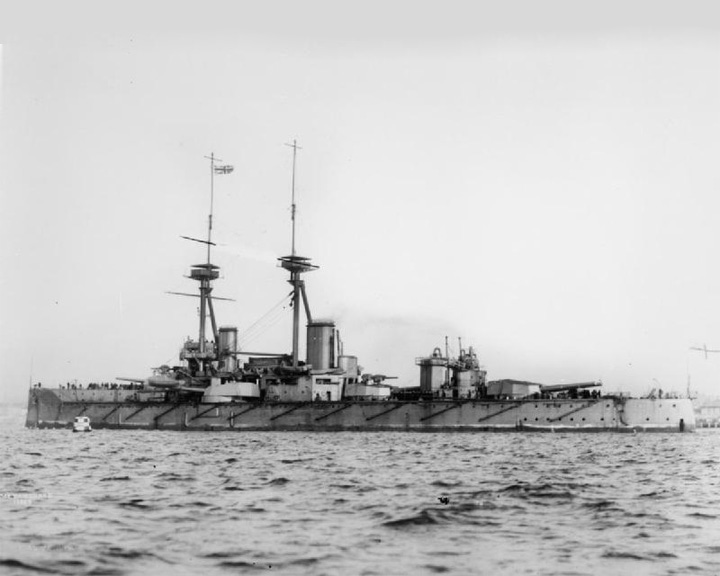 Vanguard, HMS (1909) — British St. Vincent class Dreadnaught She suffered a series of magazine explosions, sinking almost instantly, killing 843 of the 845 men aboard. Her captain coincidentally made a speech to the crew predicting the possible fate of the ship several hours before her sinking. Vanguard's wreck was heavily salvaged in search of non-ferrous metals before it was declared a war grave in 1984. Royal Navy divers placed a new Union Jack on the wreck. LAUNCHED: 1909, February 2 → FATE: Sunk by internal explosion at Scapa Flow, July 9, 1917. |
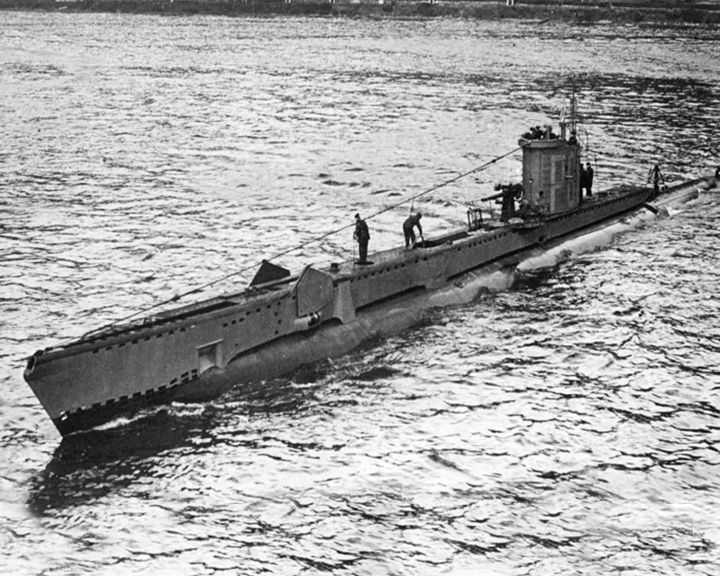 Venturer, HMS — British V-class submarine First time in naval warfare that one submarine stalked and sank another while both were submerged. Based on Enigma decrypts, she sought out and destroyed the German submarine U-864 in the Fedje area, February 9, 1945. LAUNCHED: 1943, May 4 → FATE: She was sold to Norway and renamed HNoMS Utstein. She was scrapped and broken up in 1964. |
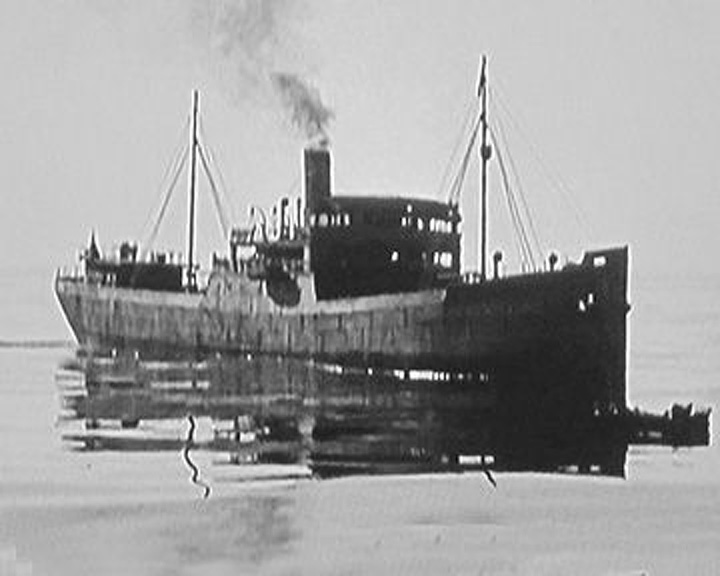 Ville de Nancy — American sloop of war Fictious ship in the movie Passageto Marseille, set during World War II and starring Humphrey Bogart. For the movie, Warner Bros. built a full-scale Merchant Marine ship modeled after the French ship Ville de Nancy. LAUNCHED: 1940 → FATE: Inconclusive. |
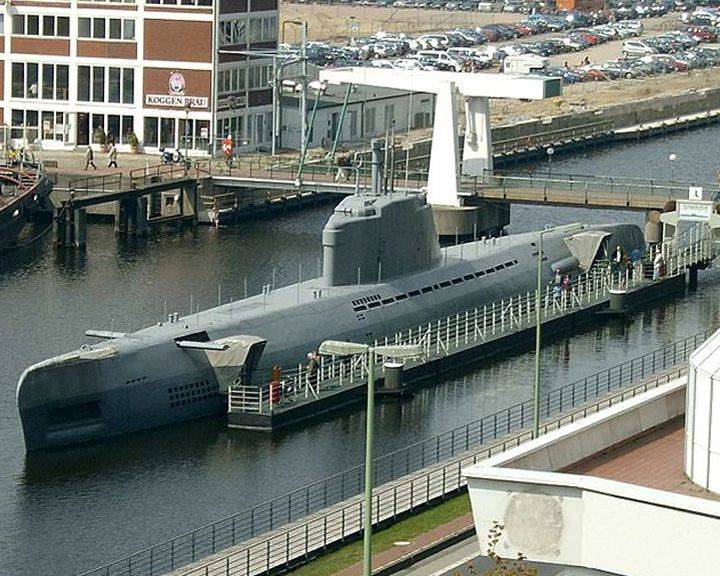 Wilhelm Bauer — German submarine, Type XXI One of several captured World War II Type XXI U-boats designed to operate primarily submerged. She is the only floating example of a this type of U-boat. LAUNCHED: 1945, January → FATE: Scuttled May 4, 1945; raised, June 1957; museum ship as of April 1984 at Bremerhaven, Germany. |
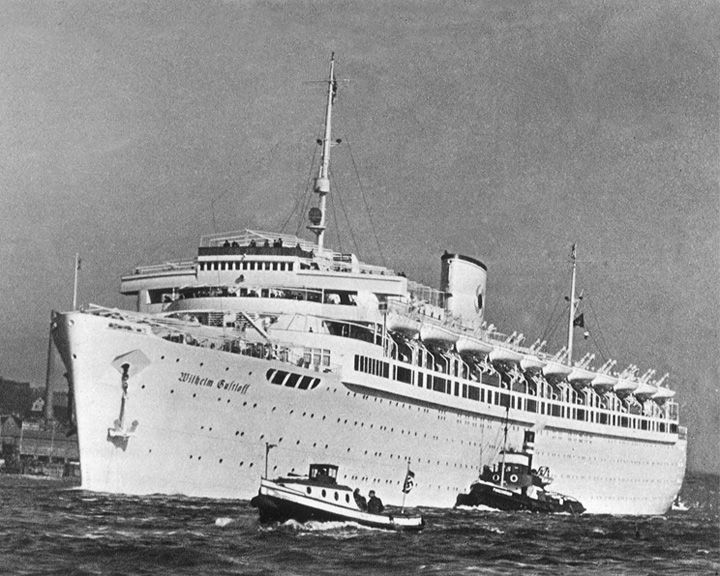 Wilhelm Gustloff, MV — German purpose-built cruise ship used as a hospital ship and troop ship in World War II Greatest ship disaster in recorded maritime history with an estimated 9,400 people were killed in the sinking. It was sunk by a Soviet submarine while participating in the evacuation of civilians, military personnel, and Nazi officials who were surrounded by the Red Army in East Prussia. LAUNCHED: 1937, May → FATE: Torpedoed in the Baltic Sea January 30, 1945. |
 Wolf, SMS — German merchant raider Armed merchant raider of the German Navy in World War I and World War II. Not a fast ship, Wolf's advantage was deception, such as changing her appearance with fake funnels and masts, and false sides which kept her weapons hidden. LAUNCHED: 1913, March 18 → FATE: Out of service February, 1918; scrapped in 1931. |
 Wolverine, USS (originally Seeandbee) — American training ship Converted from a luxury side-wheel steamer cruise ship into a freshwater aircraft carrier serving in Lake Michigan for the advanced training of naval aviators in carrier take-offs and landings. As the Seeandbee, launched in 1912, she was the largest side-wheel steamer in the world at the time. LAUNCHED: 1942, August 12 → FATE: Sold for scrap December, 1947. |
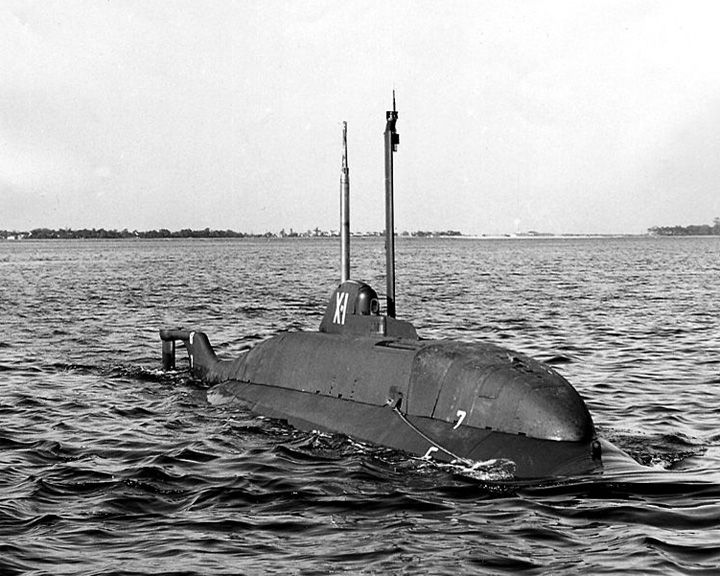 X-craft submarine — American miniature submarine Deployed September, 1943 against German warships based in Norway. These midget subs would be towed to their target area by a full-size submarine. Of the 20 built, seven were lost, 12 scuttled or scrapped. LAUNCHED: 1943 → FATE: Only one has survive and is on display at the Royal Navy Submarine Museum. |
|
Page 15
|
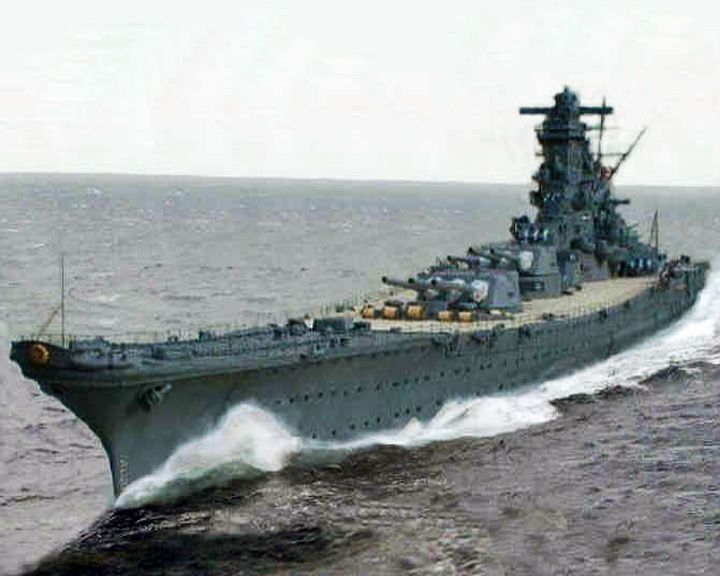 Yamato — Japanese battleship The largest, heaviest, and most powerful battleships ever constructed. She was the flagship of Admiral Isoroku Yamamoto during World War II. LAUNCHED: 1940, August 18 → FATE: Sunk north of Okinawa April 7, 1945. |
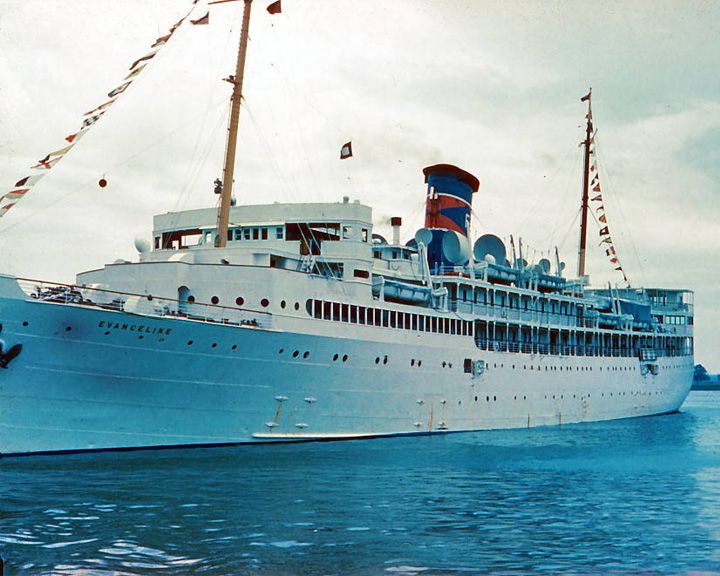 Yarmouth Castle, SS — American cruise ship Fire left 90 of 552 on board died. Her loss lead to the Safety of Life at Sea law. During World War II, she served as a troop ship and hospital ship in the Pacific. LAUNCHED: 1927 → FATE: Sunk in a blaze on the way to Nassau November 13, 1965. |
The number of All Countries Ships in World War I and II listed is 113 The contents of this page are available under the Creative Commons Attribution-Share Alike 3.0 Unported license and the GNU Free Documentation License (GFDL). |
|
|
First Ship on each page
| |
| Page | Ship Name (Country and Type) |
| 1. | Amethyst, HMS (British modified Black Swan class sloop) |
| 2. | Ballantrae, USS (American Town-class destroyer) |
| 3. | Calypso, RV (American minesweeper) |
| 4. | Curacoa, HMS (British light-cruiser) |
| 5. | Eldridge, USS (American destroyer escort) |
| 6. | Graf Spee, Admiral (German pocket battleship) |
| 7. | I-400 (Japanese submarine) |
| 8. | K-13 (British K-class submarine) |
| 9. | Liberté, SS (German ocean liner) |
| 10. | Mount Hood, USS (American ammunition ship) |
| 11. | Prince of Wales, HMS (British battleship) |
| 12. | Sea Tiger, USS (American submarine) |
| 13. | Texas, USS (American New York class battleship) |
| 14. | Vanguard, HMS (1909) (British St. Vincent class Dreadnaught) |
| 15. | Yamato (Japanese battleship) |
All Countries | |
| 1. | Amethyst, HMS British modified Black Swan class sloop |
| 2. | Argus, HMS British aircraft carrier |
| 3. | Arizona, USS American battleship |
| 4. | Asgard British yacht |
| 5. | Atlantis German auxillary cruiser |
| 6. | Balao, USS American submarine |
| 7. | Ballantrae, USS American Town-class destroyer |
| 8. | Becuna, USS American submarine |
| 9. | Belfast, HMS British town-class cruiser |
| 10. | Belinda, USS American attack transport |
| 11. | Birmingham, USS American scout cruiser |
| 12. | Bismarck German battleship |
| 13. | Blyshawica, ORP Polish destroyer |
| 14. | Britannic, HMHS British ocean liner |
| 15. | Calypso, RV American minesweeper |
| 16. | Campbeltown, HMS American Wickes-class destroyer |
| 17. | Cap Arcona, SS German ocean liner |
| 18. | Carpathia British ocean liner |
| 19. | Cassin Young, USS American destroyer |
| 20. | Cavalier, HMS British C-class Destroyer |
| 21. | City of Benares, SS British steam passenger ship |
| 22. | Compass Rose British Flower-class corvette |
| 23. | Curacoa, HMS British light-cruiser |
| 24. | Cusk, USS American submarine |
| 25. | Deutschland German battleship |
| 26. | Deutschland, SMS German battleship |
| 27. | Deutschland, submarine German submarine |
| 28. | Dolpin, USS American V-class submarine |
| 29. | Dreadnought, HMS British dreadnought battleship |
| 30. | Drum, USS American Gato-class submarine |
| 31. | Eldridge, USS American destroyer escort |
| 32. | Empire Windrush, MV German cruise ship |
| 33. | Flying Enterprise American cargo ship |
| 34. | Fujikawa Maru Japanese cargo ship |
| 35. | Furious, HMS British battlecruiser |
| 36. | Georgios Averof Greek armored cruiser |
| 37. | Gerda III Danish lighthouse tender |
| 38. | Goeben, SMS German battlecruiser |
| 39. | Graf Spee, Admiral German pocket battleship |
| 40. | Hōshō Japanese aircraft carrier |
| 41. | HA. 19 Japanese midget submarine |
| 42. | Hannibal, USS American collier |
| 43. | Higgins boat American troop landing craft |
| 44. | Honey Fitz American yacht |
| 45. | Hood, HMS British battle cruiser |
| 46. | Houston, USS (CA-30) American cruiser |
| 47. | I-400 Japanese submarine |
| 48. | Indiana, USS (BB-1) American battleship |
| 49. | Indianapolis, USS American Portland-class |
| 50. | Intrepid, USS American aircraft carrier |
| 51. | Invincible, HMS British battlecruiser |
| 52. | Iowa, USS American fast battleship |
| 53. | John Adams, USS American frigate |
| 54. | John W. Brown, SS American liberty ship |
| 55. | K-13 British K-class submarine |
| 56. | Kiangya, SS Chinese steamship |
| 57. | Laconia, RMS British ocean liner |
| 58. | Lady Elgin, PS American paddle steamer |
| 59. | Laffey, USS American Allen M. Sumner-class destroyer |
| 60. | Lancastria, RMS British ocean liner |
| 61. | Langley, USS American aircraft carrier |
| 62. | LCT7074, HM British landing craft, tank (LCT) |
| 63. | Liberté, SS German ocean liner |
| 64. | Lusitania, RMS British ocean liner |
| 65. | Mars Swedish three masted warship |
| 66. | Massachusetts, USS American South Dakota class battleship |
| 67. | Meredith Victory, SS American cargo ship |
| 68. | Mikasa Japanese pre-dreadnought battleship |
| 69. | Missouri, USS American battleship |
| 70. | Morituri German cargo ship |
| 71. | Mount Hood, USS American ammunition ship |
| 72. | MTB 102 British motor torpedo boat |
| 73. | New Jersey, USS American battleship |
| 74. | Olympia, USS American protected cruiser |
| 75. | Orion, RMS British ocean liner |
| 76. | Ostfriesland, SMS German battleship |
| 77. | Panay, USS American river gunboat |
| 78. | Patrick Henry, SS American liberty ship |
| 79. | Prince of Wales, HMS British battleship |
| 80. | Prinz Eugen German Admiral Hipper-class heavy cruiser |
| 81. | PT 109 American motor torpedo boat |
| 82. | Queen Elizabeth, RMS British ocean liner |
| 83. | Queen Mary, RMS British ocean liner |
| 84. | Reuben James, USS American destroyer |
| 85. | Robert E. Perry, SS American liberty ship |
| 86. | Royal Oak, HMS British Battleship |
| 87. | Sea Tiger, USS American submarine |
| 88. | Seraph, HMS British submarine |
| 89. | Serpens, USS American Crater-class cargo ship |
| 90. | Silversides, USS American Gato-class submarine |
| 91. | Sundowner British motor yacht |
| 92. | Sydney, HMAS Australia Leander-class light cruiser |
| 93. | Szent István, SMS Hungarian dreadnought |
| 94. | Tang, USS American Balao class submarine |
| 95. | Texas, USS American New York class battleship |
| 96. | U-234 German submarine |
| 97. | U-480 German experimental Kriegsmarine Type VIIC submarine |
| 98. | U-505 German submarine |
| 99. | U-96 German German Type VIIC submarine |
| 100. | U-995 German submarine |
| 101. | Upholder, HMS British U-class submarine |
| 102. | Vandenberg, USAFS American transport ship |
| 103. | Vanguard, HMS (1909) British St. Vincent class Dreadnaught |
| 104. | Venturer, HMS British V-class submarine |
| 105. | Ville de Nancy American sloop of war |
| 106. | Wilhelm Bauer German submarine |
| 107. | Wilhelm Gustloff, MV German purpose-built cruise ship |
| 108. | Wolf, SMS German merchant raider |
| 109. | Wolverine, USS American training ship |
| 110. | X-craft submarine American miniature submarine |
| 111. | Yamato Japanese battleship |
| 112. | Yarmouth Castle, SS American cruise ship |
|
About the Data There are more than 400 ships in this database, but the initial list is only for famous ships names that begin with letters "A-B". For other listings, use the country and type tabs. Touching (or cursor over) a ship image produces an enlargement. Touch anywhere else (or move the cursor off the image) to close the larger image. Touching (or clicking on) any underlined name will link to a page with more information. Although submarines are usually called boats, they are grouped with ships here. Most of the information comes from Wikipedia. |
^
Other Pages in Names Galore: | |
Famous Cowboy Names Sports Team Names Other Name Lists | Name Generators Naming Fun Stories about Names |